

SPRING 2022 EQUITY ESSENTIAL TO INTERSTATE BRIDGE REPLACEMENT PROGRAM WSP USA Builds DBE Relationships and Capacity Onyx Enterprise Thriving in Michigan Hill International Partners with DBEs in New York Region Page 16 PANYNJ Recommits to Inclusion Also in this issue • Airport Car Rental Supplier Diversity • IndyGo Helps DBEs Grow • New DBE Fraud Cases Page 13 Page 28
(from left) IBR program team members
André Baugh, Administrator Greg Johnson and Lisa Keohokalole Schauer


2 / SPRING 2022 BUILDING BETTER COMMUNITIES Co nst r u c tion Man a ge m en t E n gi n ee ri n g Se r vi ce s E nvi ron m ent a l M an a gemen t Prog ram Manage m en t Re m edia t ion & Con t ra c t i n g Su r vey & M a ppin g Building Communities, Creating Oppor tunities, Inspiring Young People Lea rn mo re a t ce rm .co m Atlanta | Mobile | Tampa | Orlando


Contributing to a better future with every project Become a preferred prequalified partner by registering with us at: www.laneconstruct.com/work-with-us/subcontractors

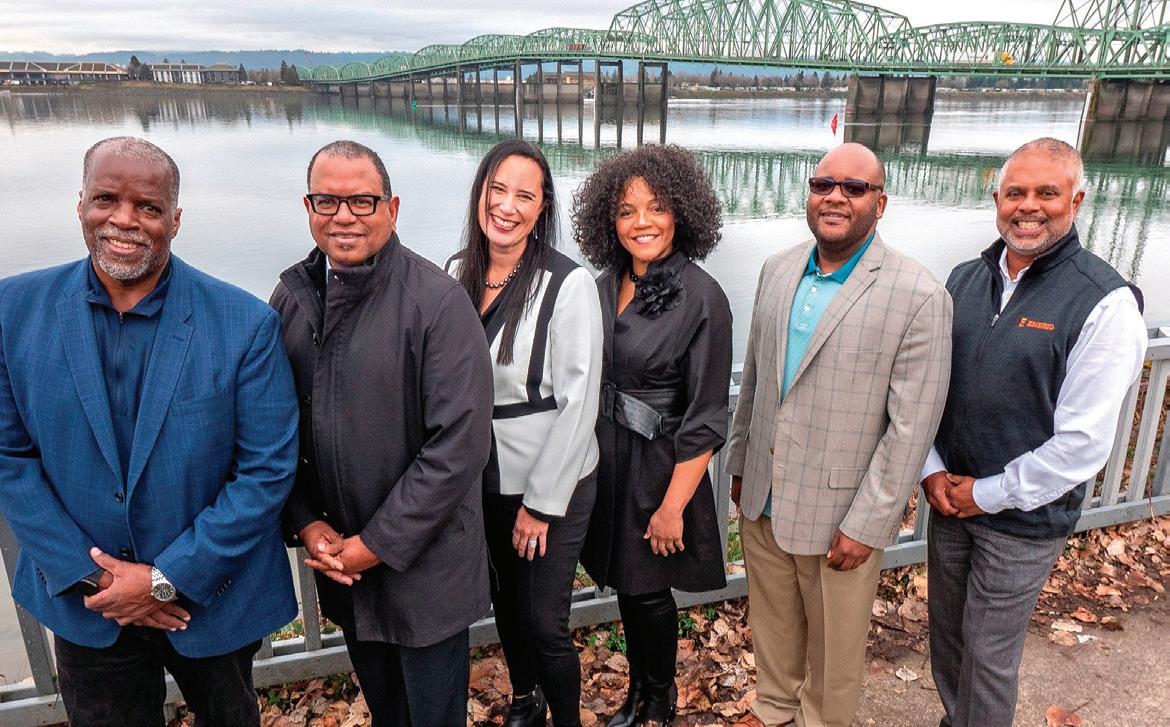


4 / SPRING 2022 Features Equity Essential To Interstate Bridge Replacement Program Hill International Partners With DBEs In New York Region WSP Embraces Diversity 23 DBE Power Player Onyx—Relationships Are The Key to Success by Peggy Beach 28 DBE Program Spotlight INDUSTRIES Airports Airports and Car Rental Companies Partner to Increase ACDBE Opportunities Transit IndyGo Helping DBEs Grow Civil/Highway DOJ Files Grand Jury Indictment in DBE Fraud Case and Settles Another Case 26 PANYNJ— Raising The Bar On MWBE Utilization by Laurie D. Willis 16 13 10 32 34 36 Business Development Jobs Act Adds Prompt Pay Requirements by Ryan Kelly Cost-Efficient Marketing Strategies Help Win Contracts by Destiny Bannister Advertiser Listing & National Upcoming Events 38 43 16 28 46
SPRING 2022
Volume IX - Issue II


Publisher
Shelton A. Russell
Managing Editors
PR PROS, LLC
Creative Director
William Cash
Digital Media
Premier Web Design Solutions
Editorial
Destiny Bannister
Peggy Beach
Ryan Kelly
Shelton A. Russell
Jordan Taylor
Laurie D. Willis
Headquarters
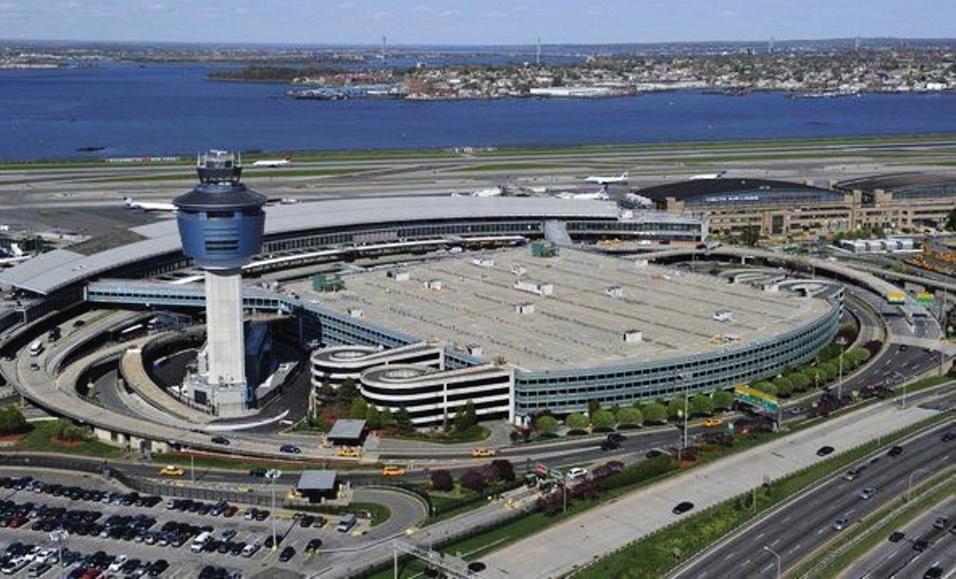
514 Daniels Street, #186 Raleigh, NC 27605
Website www.AmericanDBE.com
About American DBE Magazine
American DBE Magazine is the premier industry resource for individuals and stakeholders who work in the infrastructure, construction and transportation industries. American DBE Magazine is published quarterly and distributed in all 50 states— plus Puerto Rico and the U.S. Virgin Islands—to DBE program administrators, business owners, and professionals in the Aviation, Highway Construction and Public Transit industries.
Subscriptions
American DBE Magazine is published quarterly in Fall, Winter, Spring and Summer editions. The annual subscription rate is $24.99 including online editions, special industry reports, and four issues: single copy list price is $6.99 plus postage originating from Raleigh, North Carolina.
Branding Campaigns
Copywriting & Editing
Crisis Communication
Graphic Design & Layout
Media Coaching & Training

Public Relations & Media Relations
Research & Strategic Planning
Social Media Management
Strategic Communication
Video Production Services
5 / SPRING 2022
Advertisting Sales editor@AmericanDBE.com (919) 741-5233 (Office)
13
Politics... As Usual
From the inception of the United States of America, politics has been one of the primary tools used to oppress, discriminate and restrict the advancement of minorities and women in society. Unfortunately, any progress the country made confronting this reality came through the blood, sweat and tears of those harmed by the unjust political decisions, and from the enlightened allies of the oppressed who said enough is enough.

The use of politics as a tool to justify oppression by immoral leaders was chiseled into American history when a group of men gathered in the Philadelphia room now known as Independence Hall and turned the moral question of slavery into political discourse to be debated like a budget negotiation or business deal. Justice, fairness and morality lost the battle to politics and greed on that day, and our country has struggled with the same challenges ever since. This use of politics as a tool to forge systemic racism, oppression and discrimination has continued throughout American history evidenced by political actions and policies such as slave codes, eminent domain laws, Jim Crow laws, poll tests and voting restrictions, separate but equal legislation, unequal interpretation and administration of Civil Rights laws, and the list goes on.
Today, we witness politics being used as a tool to allow military-grade, semi-automatic weapons on the streets – easily and legally accessible for sick individuals to target and slaughter children, along with African American and Asian American people. Politics is the driving force to prevent the accurate teaching of American history and to prevent or restrict the full application of laws to create a more equitable society. These realities remind me that our country is doing what it has always done, and change will only come from a demand by the marginalized groups and the enlightened allies fighting for change; remembering Dr. Martin Luther King Jr.’s quote that “the arc of the moral universe is long, but it bends towards justice.”
As part of the never-ending work for equality, many of us have chosen striving for economic opportunity and equity as our contribution to the world; working to “level the playing field” and ensure businesses

owned by minorities and women have fair access to contracting opportunities created by the spending of tax dollars used to improve infrastructure and transportation systems. This issue of American DBE Magazine highlights these efforts.

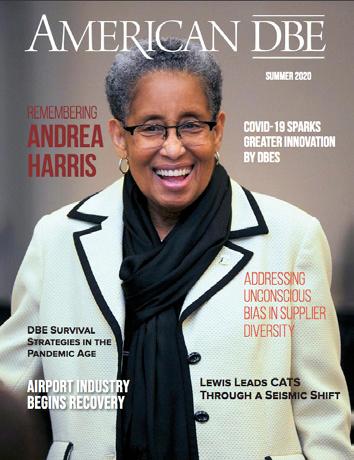



Our cover story highlights the work of the Interstate Bridge Program to complete a bridge connecting the states of Oregon and Washington while creating a national model for equity and sustainability in a major infrastructure project. The issue also features the success of WSP USA and Hill International in partnering with DBE firms to increase business capacity. Our DBE Power Player is Detroit-based Onyx Enterprise, led by Tarolyn Buckles, a woman building a career overcoming barriers while helping others along the way. Our Program Spotlight shares the success of the Port Authority of New York and New Jersey in recommitting its focus on the DBE Program and maximizing opportunities for diverse companies.
Our stories highlight the IndyGo DBE Program as it builds two new Bus Rapid Transit (BRT) lines creating opportunities in Indianapolis, the 2022 Airport Rental Car Supplier Diversity Outreach Day, and the latest efforts of the U.S. Department of Justice to prosecute companies participating in DBE fraud. We hope you enjoy this issue ... please continue to stay safe.

6 / SPRING 2022
publisher Shelton A. Russell, Publisher American DBE Magazine
Regards, GET MORE! Visit us at www.AmericanDBE.com
From the
Best









7 / SPRING 2022
2020, Messer Construction Co. spent $278M, 21.2% of our purchases, with certified M/WBE businesses across our regions in the Midwest and Southeast. messer.com @messerwearebldg Register your business as a subcontractor at messer.com/subcontractors/diverse-suppliers Dedicated resources for strategic partnerships Excels in company purchases with diverse suppliers Nationallyrecognized best practices
Inclusion
In
All in together
Drives Innovation

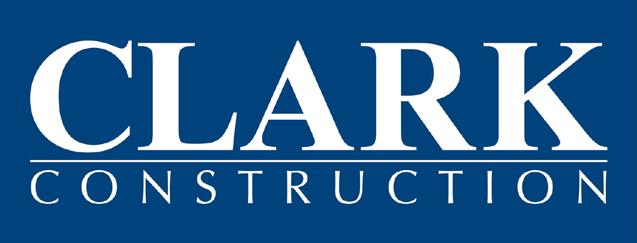
8 / SPRING 2022 Building
T he Small & Diverse Business Expo Hosted by Clark Construction Group June 30, 2022 7:00 a.m. - 3:30 p.m. Walter E. Washington Convention Center 801 Mt. Vernon Place, N W, Washington, DC 20001 Join us for a one-day conference to build your business’ capacity, connections, and certifications. Learn what it takes to be certified in each of the region’s jurisdictions, meet with Clark and building industry executives, network with fellow small and diverse business leaders, and gain insights about upcoming project opportunities across the region. Scan the QR code or visit clrk.cc/sdbx2022-dbe to learn more and register today!
what matters, together.


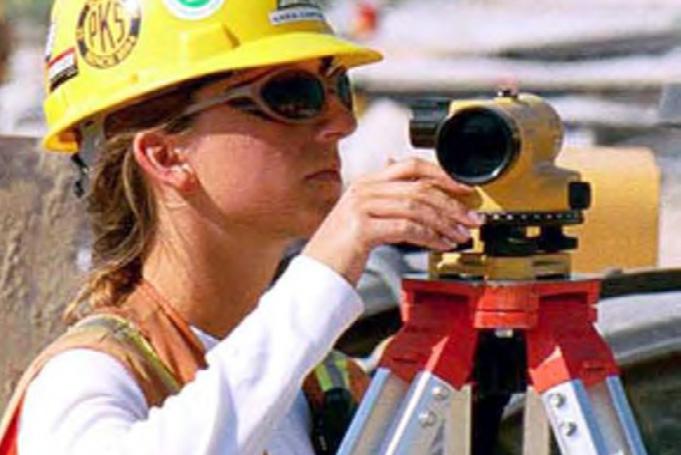


9 / SPRING 2022
WSP Embraces Diversity as Bipartisan Infrastructure Law Takes Effect
WSP USA has consistently been an advocate and champion for diversity and worked with diverse businesses. In fact, WSP already partners with many DBE firms on current development programs for agencies like the Illinois Tollway Authority, METRA, the Interstate Bridge Program in Oregon and Washington, Maryland Department of Transportation, Los Angeles County Metropolitan Transportation Authority and others. These projects are underway while WSP is preparing to gear-up for more opportunities in the coming months as projects funded by the infrastructure bill start to roll out.
WSP Senior Vice President John Trotta recognizes the value diverse firms bring to the infrastructure industry, as he works closely with DBE business partners to deliver major infrastructure programs and projects as the firm’s national director for client services. Trotta said, “I have personally had the opportunity to work with many DBEs that have gotten their first major opportunity with us, and there is nothing more fulfilling than being in the office of a DBE firm when they learn they are part of a winning team on major program that will be a game-changer for their business.”
Trotta also realizes the industry will need the full engagement of large companies like WSP as well as smaller diverse companies to complete the many projects funded by the Bipartisan Infrastructure Law. Moving forward, Trotta said he believes that minority, women, and Disadvantaged Business Enterprises will play a crucial role as key business partners in WSP’s success on major infrastructure projects. “We gain value and insight through working with DBE business owners,” Trotta said. “Our model is
to bring our industry experience to DBEs by putting them on major programs and then growing them into more meaningful roles.” These partnerships allow WSP to benefit from adding capable business partners and building additional expertise, while their DBE partners benefit from increased skills, capacity and experience working on large infrastructure projects.
However, one of Trotta’s concerns as the industry ramps up in 2022 is the number of firms that may grow too large to participate in the federal DBE Program. He expects some capable and experienced firms may eventually exceed the personal net worth or business size limitations of the DBE Program, and therefore become ineligible to work as WSP business partners to meet clients’ DBE participation goals for major projects. Trotta thinks it would be unfortunate to lose highly qualified businesses from the program, precisely when the industry needs their experience and capacity to deliver major programs and projects across the country. “Although there are a lot of smaller DBE firms

that WSP can and will work with, they may not have the specific experience or capacity to perform the vast services needed on some larger complex projects,” Trotta said.

One potential solution he offers is for federal administrators to consider placing a temporary moratorium on removing firms from the DBE Program due to business size or personal net worth limitations. “High-level talent wants to work on large and complex capital projects, so maintaining and building the capacity of experienced DBE firms to work on these projects also allows them the ability to hire and retain talent,” Trotta said.
The Value of Collaboration
Trotta said it is in WSP’s best interest to embrace the value collaboration brings to both the company and to its DBE partners. WSP provides engineering services in nearly every sector of the infrastructure design and construction industry. Their work includes airports, transit, railroads, building, highways, utilities and water/wastewater programs
10 / SPRING 2022
A tolling facility operates along the Illinois Tollway. As the general engineering consultant, WSP is leading the Illinois Tollway’s commitment of innovation with design advancements for digital delivery models of tomorrow.
and projects. Most of the company’s clients, both public and private, have regulations or policies to increase the participation of companies owned by minorities and women. Therefore, building lasting and mutually beneficial partnerships with diverse firms allows WSP to develop business partners with the capability to work in multiple segments of the industry.

At the same time, WSP’s wide range of market sectors allows DBE business partners to expand their expertise into new market segments. It also allows DBE partners to assume more significant roles as business partners as their experience and knowledge of the WSP organization grows. Trotta takes pride in watching DBE partners grow with WSP into more significant roles of projects, such as serving as lead structural engineer or lead environmental engineer on major projects. He also enjoys watching DBE partners take on significant roles in helping WSP acquire new business opportunities by providing local expertise and relationships and working closely with WSP to write proposals and make interview presentations. He believes this collaboration demonstrates the true intent of the DBE Program. “We have won great jobs by having meaningful participation by our minority business partners giving us great ideas, helping write proposals, and taking significant roles in the interview process as well,” he said.
One example of a DBE partner adding significant value on a WSP project is the work of GSG Consultants on WSP’s general engineering consultant contract with the Illinois Tollway Authority. GSG helped engineer an innovative design of a TL-5 barrier wall, consisting of a crash wall built with a noise barrier on top of it. “It is the first of its kind in the country, and GSG was part of the development of that
wall. That is just one example of how we rely upon our minority partners and see them as true business partners,” Trotta said.
Contributing to DBE Success
Trotta is confident that contributing to DBE success helps the entire industry advance and benefits the entire nation. He knows that having capable small and diverse firms adds to the ability for the infrastructure design and construction industry to build communities and get the country up-to-speed with the infrastructure repair and development needs across the country. “There is enough work for everyone, and we will need all the help we can get to address this country’s infrastructure needs; and we don’t have the luxury of leaving out companies owned by minorities and women,” Trotta said. Helping DBE partners succeed allows Trotta and other WSP team members to ‘do well, while doing good.’ It allows WSP to meet its corporate goals while contributing to the nation’s economy and building underserved communities. “Our projects afford DBE firms the opportunity to expand while working on large, multi-year projects that allow them to increase staff and grow into larger firms,” he said. “For instance, we are starting a major program for METRA in Illinois, and we have a DBE partner doing around 3 to 4% of the project. While it is not a sizable percentage, working on this project will allow them to
Above: WSP USA Senior Vice President John Trotta.

Below: A segment of the Illinois Route 390 Tollway in Northeastern Illinois. The Illinois State Toll Highway Authority is the first agency in the country to deliver a major advancement in highway safety by way of a design developed by a WSP project team. The team successfully designed and crash tested a barrier mounted noise abatement wall that meets the American Association of State Highway and Transportation Official’s Manual for Assessing Safety Hardware (MASH) Test-Level 5 criteria.
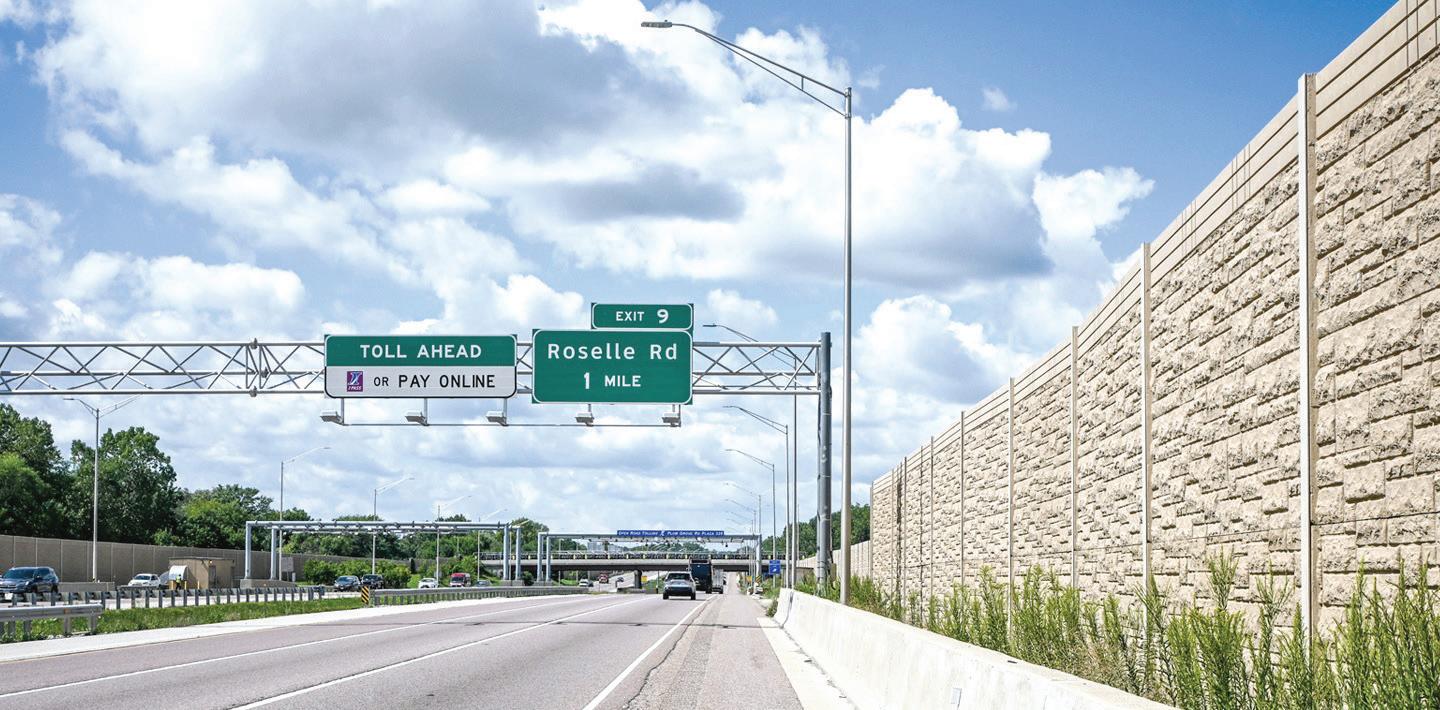
11 / SPRING 2022
build experience that they can take to other jobs and sell the fact that they worked on this major program.”
WSP is aware of the need to be ready to address Diversity, Equity and Inclusion principles and initiatives in the Bipartisan Infrastructure Bill. WSP recently launched its Equity Center for Excellence and now offers Civil Rights and Compliance Advisory services for its clients. Across the nation, WSP offices will continue to proactively connect with the local DBE community about opportunities for current and potential projects to build and strengthen professional relationships.
Trotta advises diverse firms that are interested in working with WSP to reach out to one of their local offices across the country or attend DBE outreach meetings at WSP offices when they arise. He believes one of the hallmarks of WSP is reaching out to new firms seeking to become business partners.

C olette Holt & A ssociates provides legal counsel and consulting ser vices to governments and businesses.
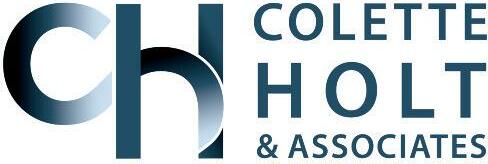

Co l e t te H o l t & A s s o c i ate s i s a f i r m o f n at i o n a l l y re co g n i ze d ex p e r t s i n co n d u c t i n g d i s p a r i t y s t u d i e s a n d d e s i g n i n g, i m p l e m e n t i n g a n d d e f e n d i n g s u c c e s s f u l a f f i r m at i ve a c t i o n p ro g r a m s.
• Minority / Women / Disadvantaged Business Programs
• Affirmative Ac tion and Compliance Consulting and Training
• Disparity and Availability Studies
• Speaking and Presentation Ser vices
• Exper t Witness Ser vices
• General Counsel to Americ an Contrac t Compliance Association


12 / SPRING 2022
( 7 7 3 ) 2 5 5 - 6 8 4 4 • c o l e t t e . h o l t @ m w b e l a w . c o m • w w w . m w b e l a w . c o m
Hill International Details Key Considerations When Selecting Project Partners

based in Philadelphia, Pennsylvania, manages multi-billion-dollar programs for public and private clients around the world. Hill often works with diverse firms owned by minorities and women to complete contracts and meet client’s expectations. A major market for the firm is New York City, where Hill is completing major programs for the Port Authority of New York and New Jersey and the New York City Department of Design and Construction. The firm uses these and other major programs as an opportunity to team with a variety of small business partners.
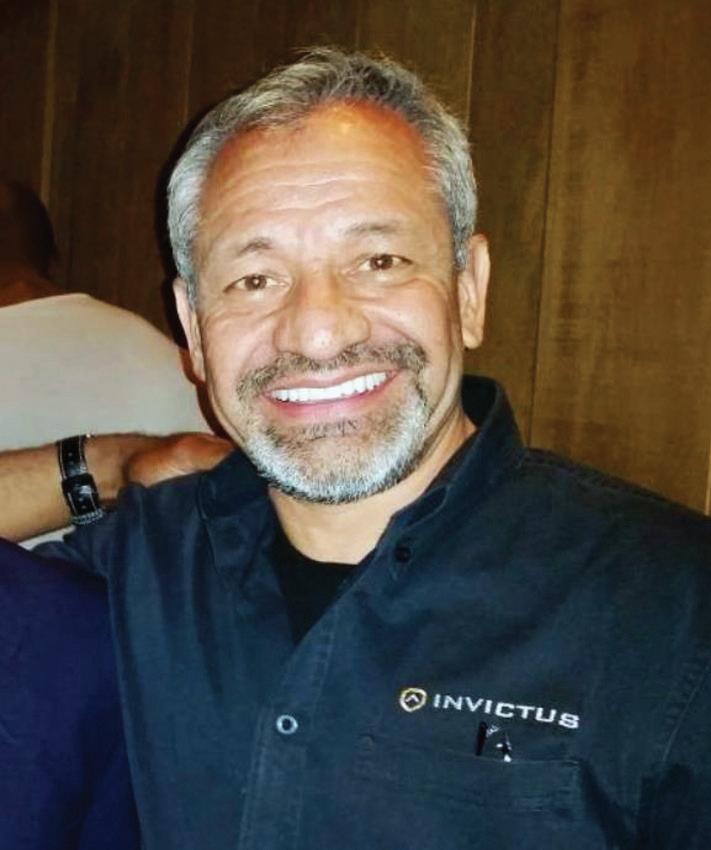

A significant component of building successful relationships with companies owned by minority, women, and servicedisabled veterans is understanding what diverse business owners look for when teaming with a prime consultant on major programs. Leaders of Hill’s New York City opportunities understand that considering partnering relationships from the viewpoint of their small business partners helps the firm perform more effectively for its clients
and helps build stronger relationships that are beneficial in the short term and for future business opportunities.
“We look for SBE, DBE, SDVOB, and MBE
partners that bring specific skillsets to our teams, and also firms that can complement and reinforce our own skills,” said Hill Vice President, Business Development Northeast, Mellanie Bennett-Monclova. “We’re blessed with a deep pool of promising and qualified firms in New York, but we also look for intangibles: we want partners that match our values and are committed to the pursuit and the success of the project.”
Partnering with minority-owned business enterprises (MBEs), woman-owned business enterprises (WBEs), and service-disabled veteran-owned businesses (SVDOBs), brings a wealth of benefits to a project management team. These firms often bring specialized and local expertise in a management area larger firms may lack, such as in third-party permitting or real estate acquisition for public projects. Similarly, MBE/WBE/SVDOB firms often provide a local perspective on how a project may impact a community, as well as connections to influential stakeholders and key decision makers. These
13 / SPRING 2022
As part of a joint venture, Hill provided construction management services to the Dormitory Authority State of New York for the design and construction of a new mixed-use academic building at SUNY FIT in New York City.
Hill International Inc. (Hill), a project management and construction management firm
James Bermudez PE, president of Invictus Engineering, PC
connections can be invaluable in identifying obstacles before they can affect project progress and can help generate buy-in for projects as well.
Oftentimes the advantages small and diverse business partners bring surpass the challenges large firms face when seeking to meet the participation percentages expected by public agencies on their procurements. However, to truly succeed, MBE/WBE/SDVOB and other small business types also look for the right “fits” when considering which programs, projects and prime firms match their skillset, culture and long-term goals.
Invictus Engineering PC
Hill International developed a successful partnership with Invictus Engineering while completing major infrastructure projects in the New York City area. Invictus, a certified MBE, SBE and SDVOB, provides construction management and inspection, project planning and controls, and consulting for projects in New York City and across the U.S. In business for more than 17 years, highlights of Invictus’ portfolio include helping to deliver the new Moynihan Station in Manhattan, the Pier 26 Redevelopment for the Hudson River Trust, and the Downtown Riverfront Streetcar Project in Sacramento, California. James Bermudez, PE, President of Invictus said the firm’s success is due to its commitment to its employees, its markets, and its clients; and that Invictus looks for prime partners that share this business ethos.
“We’re here for the long-term,” Bermudez said. “We don’t ‘try out’ a market, and we stick to our core competencies. When we’re looking to team with a larger firm, we want to see some overlap in our services, so we each understand what we need to do to deliver the work product, and so we know we agree that, as professional services firms, we are all about our people and our reputations.”
Bermudez said that red flags when considering a prime partner for Invictus include low rates/multipliers and shoestring staffs. “The bitterness of poor quality remains long after the sweetness of low price is

forgotten. We will never work with a prime that, even mildly, believes that they’ll make up their costs on the next contract.”
Similarly, Bermudez looks for primes who are well-prepared for the solicitation: are they just “answering the mail” or is the solicitation really part of a coherent, strategic program? “Our history with a prime is important,” Bermudez said. “Have we had previous success with them? Or do we have a track record of teaming and not ultimately winning?” Bermudez explains that Invictus has a list of “Preferred Primes” who meet these criteria.
As for those primes who don’t seem like the right fit for Invictus? “We don’t have a list of primes we won’t team with, but we
know who they are – we politely decline when asked to join them on a pursuit.”
Bermudez said that, as a small business, Invictus counts on its prime partners in several ways. “Participation of the Project Manager and/or Project Executive during the proposal stage is great, as it shows a commitment to the pursuit that will carry over after the win. If the team leadership is absent, and if the prime just wants our paperwork to get their proposal submitted, it can mean trouble ahead,” Bermudez said. “We do not have a large administrative level, so we count on our prime partners to lead contract administration. This is especially important in New York where entities may require a lot of admin. Will the prime buckle under pressure if an owner is under financial duress or delays payment? If they do, Invictus can’t absorb that cost and survive.”
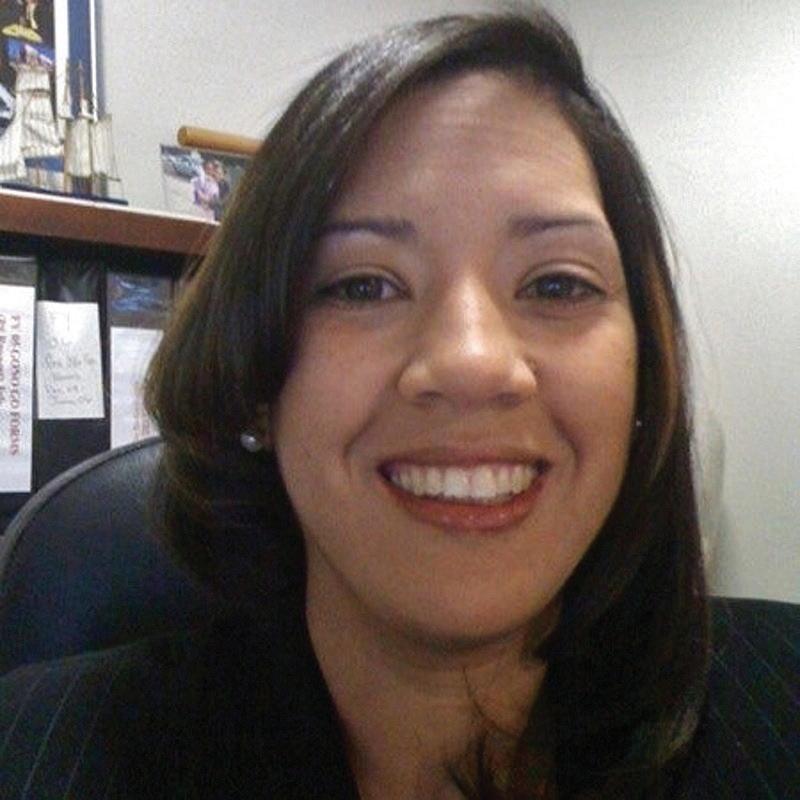
Integrated Strategic Resources (ISR), LLC.

Integrated Strategic Resources (ISR) is another of Hill’s successful business partners in the New York City area. ISR, founded in 2000 and headquartered in New York City with offices in Baltimore and New Jersey, is a certified DBE, SBE and WBE providing systems integration, radio frequency and wireless communications, network applications, electronic security, and rail transit operations analysis to such clients as the Metropolitan Transportation Authority, NJ Transit, and Amtrak, among many others.
ISR COO Jeffrey W. Vladyka said he understands why primes come to ISR and echoed Bermudez in detailing ISR’s business philosophy. “This is a people business, and ISR provides professionals with the skills that fit each required role. We know our quality is in our people, and we look for partners that share that mindset.” Vladyka also said that he worked with Hill’s New York leadership previously during his career and knows the firm will treat ISR as a valued partner and not to check a box during the proposal process. That relationship, he said, is built on years of shared experience.
14 / SPRING 2022
Integrated Strategic Resources COO Jeffrey Vladyka, PE
Hill International Vice President of Business Development Northeast Mellanie Bennett-Monclova
“At ISR we believe listening to our employees is key to our success,” Vladyka said. “We want to partner with firms that develop their workforce and value employee feedback like we do. Maybe it’s a cliché, but behind every timesheet is a family. That human component is what makes our company successful, and we believe it’s also what makes project teams successful. So, we look for those qualities when choosing our partners.” He added, “Over the years, jobs come and go, but loyalty and allegiance are long-term.”




Vladyka notes that ISR also carefully considers which primes to partner with on opportunities. He said: “The core services that ISR is recognized for are important to translate to the scope both identified in








the Request for Proposal (RFP) and in the prime’s acknowledgement of the contribution ISR can provide the team and ultimate client. That, along with clear and consistent contract terms, is always a part of teaming consideration.”


Success is the Goal



























Bermudez said Invictus has been lucky in finding great prime partners: “We have had many positive experiences over the past 17 years, or we wouldn’t be around. The A/E and CM landscape New York City is as dynamic as it has been since I started in 1989, from much higher MWBE goals and enforcement to where funding is – or is likely – to shift. But I can’t imagine that the practices I described








above will change radically. In fact, I think it will place an even heavier burden on primes and subs to stay in tune with the rapidly adapting policy changes the owners will have to implement.”















Vladyka said ISR ultimately strives to deliver a successful project for the prime and knows that their relationships with prime partners is what has helped ISR grow over the decades. “Expansion isn’t the end-all, be-all for us,” he said. “First and foremost, we pride ourselves on delivering for our prime and their clients, and those successes provide our firm and our employees growth opportunities to use their talents as part of a successful project. Prime partners who understand that goal are the firms who, ultimately, help make all of us successful.”






15 / SPRING 2022
Subscribe today! Visit us at: www.AmericanDBE.com Delivering Integrity. Delivering Innovation. Delivering Inclusion. PM/CM provider Hill International is delivering the infrastructure of change with our DBE partners across the U.S. Become a partner. Send information to SubContractor-Supplier@hillintl.com Program Management | Project Management | Construction Management Project Management Oversight | Management Consulting | Facilities Management www.hillintl.com
Interstate Bridge Replacement Program Aims for Excellence in Equity and Sustainability

Interstate
from Canada
Mexico.
One critical part of the highway is the 3,500-foot Interstate Bridge connecting the states of Washington and Oregon at the Columbia River. The bridge has been a major juncture of I-5 for more than 100 years, first constructed as a two-lane wooden pile bridge in 1917 and then expanded to add a second parallel bridge in 1958 -- providing three through lanes of traffic flowing both north and south. The bridge currently carries more than 140,000 vehicles per weekday through the region.
Both structures are fast approaching the end of their useful life, and plans are in progress to replace the functionally obsolete bridge with a new bridge and related improvements funded by the new Bipartisan Infrastructure Law passed in 2021. President Biden discussed this bridge as one of America’s most critical infrastructure projects during talks about the importance of passing the legislation.
Legislators in Oregon and Washington have recognized the need to address this essential link between the states for more
than 20 years and made an earlier attempt to gather public support and financing to replace the bridge. The first attempt, called the Columbia River Crossing, began in 2005 but was canceled after legislators did not pass the budget needed to match federal
funding for the project. The two states united again in 2019 when governors and legislative leadership in both states directed

16 / SPRING 2022
5 is the primary interstate highway connecting the west coast of the United States, stretching
to
This critical transportation route facilitates the mobility of people and products through the states of Washington, Oregon and California.
the Oregon Department of Transportation (ODOT) and the Washington State Department of Transportation (WSDOT) to launch the bi-state Interstate Bridge Replacement (IBR) program to move ahead with plans to complete the project.
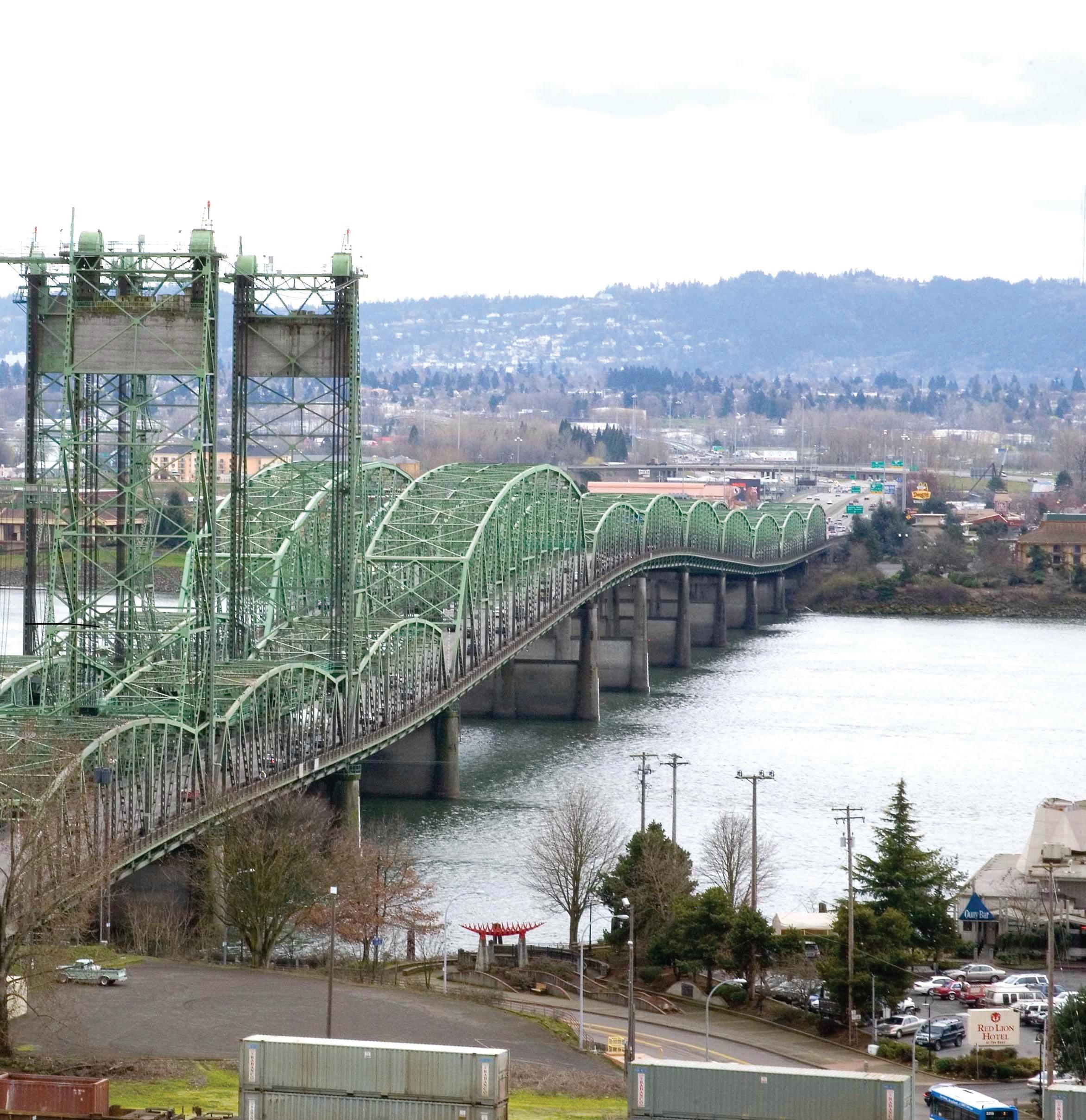
The IBR program is now on track to gain the necessary approvals and funding to begin construction by 2025. One of the first challenges is securing federal support for the program by completing environmental approval and securing financial commitments from the Federal Highway Administration to fund the project. Second, the program must gain funding from the states of Oregon and
Washington and other local government partners to accumulate a budget of $3.2 to $4.8 billion to complete the program.
The new bridge program includes five miles of interstate and seven interchanges along with the new bridge structure. It also will include multimodal transit plans to facilitate the use of public transit through the corridor. The IBR program is using the time necessary to complete the environmental approval process to also work with community stakeholders and develop a locally preferred alternative design for the program. During this time different options for the bridge design, public transit services, and location of
interchanges will be considered to ensure the new facility maximizes the effectiveness of the transportation corridor and the benefits to all members of the Greater Portland community.
The IBR program has made equity and sustainability core components of the predevelopment, design and construction process. Leaders in Oregon and Washington know it will take all segments of the Greater Portland community, citizens across each state to support the project, to vote for funding, and believe they are a part of the benefits the bridge will bring to the area. The core values of equity and sustainability
The Interstate Bridge seen from Vancouver, Washington, looking south toward Hayden Island in north Portland, Oregon, where Interstate 5 crosses the Columbia River. (Photo Credit: Cacophony)
also fit squarely within the Bipartisan Infrastructure Law’s commitment to ensure all members of American society equally share the benefits and impacts of transportation improvements. “This project will be a model for how equity and sustainability can be incorporated into a project that is completed successfully and within budget,” Interstate Bridge Replacement Program Administrator Greg Johnson said.
Johnson joined the IBR team in 2020 to lead the program from the predevelopment phase of the project through the design and construction phases. He brings a wealth of experience to the program, in addition to a keen awareness of the significance of equity and sustainability in major transportation projects. Johnson has spent his entire career in the highway transportation industry, starting as a civil engineer at the Michigan Department of Transportation after graduating from the University of Michigan. He rose through the ranks to become Deputy Director of the agency before being selected
to become Administrator of the Maryland Department of Transportation State Highway Administration (MDOT SHA). Before joining the IBR team, he was a senior vice president in the Michigan office of WSP, USA. Leading the IBR program brings Johnson back to his professional roots in civil construction – and fuels his passion to bring equity, access and opportunity for previously underserved members of the community. His goal for the IBR program is to improve the quality of life of community members through increasing mobility and access to goods and services, while expanding economic opportunities equally to all segments of the population. His passion for this comprehensive approach is rooted in his life experience. He vividly remembers the impact major infrastructure projects had on his life as a child growing up in Michigan. Johnson was captivated and inspired by a major highway project in his neighborhood that represented growth and opportunity. However, he was disturbed by the negative
impacts his African American community experienced because of the project. His family and his neighbors were forced to sell their homes and move to another area when the highway project was routed through his community, leaving the areas permanently decimated by the project. “My family had to move three times when I was a child due to the impact of infrastructure projects in my hometown in Michigan,” Johnson said.
He is determined to ensure this type of negative impact does not accompany the IBR program; making sure economic benefits are shared by all segments of local communities, businesses and workforce participants across the Portland metropolitan area. “DOTs across the country have a checkered history in building interstates through minority and specifically African American communities,” Johnson said. “Here we have a commitment from both Washington State DOT and Oregon DOT to get the equity piece right; and I want to make sure this project is a national model and standard for how to make sure equity
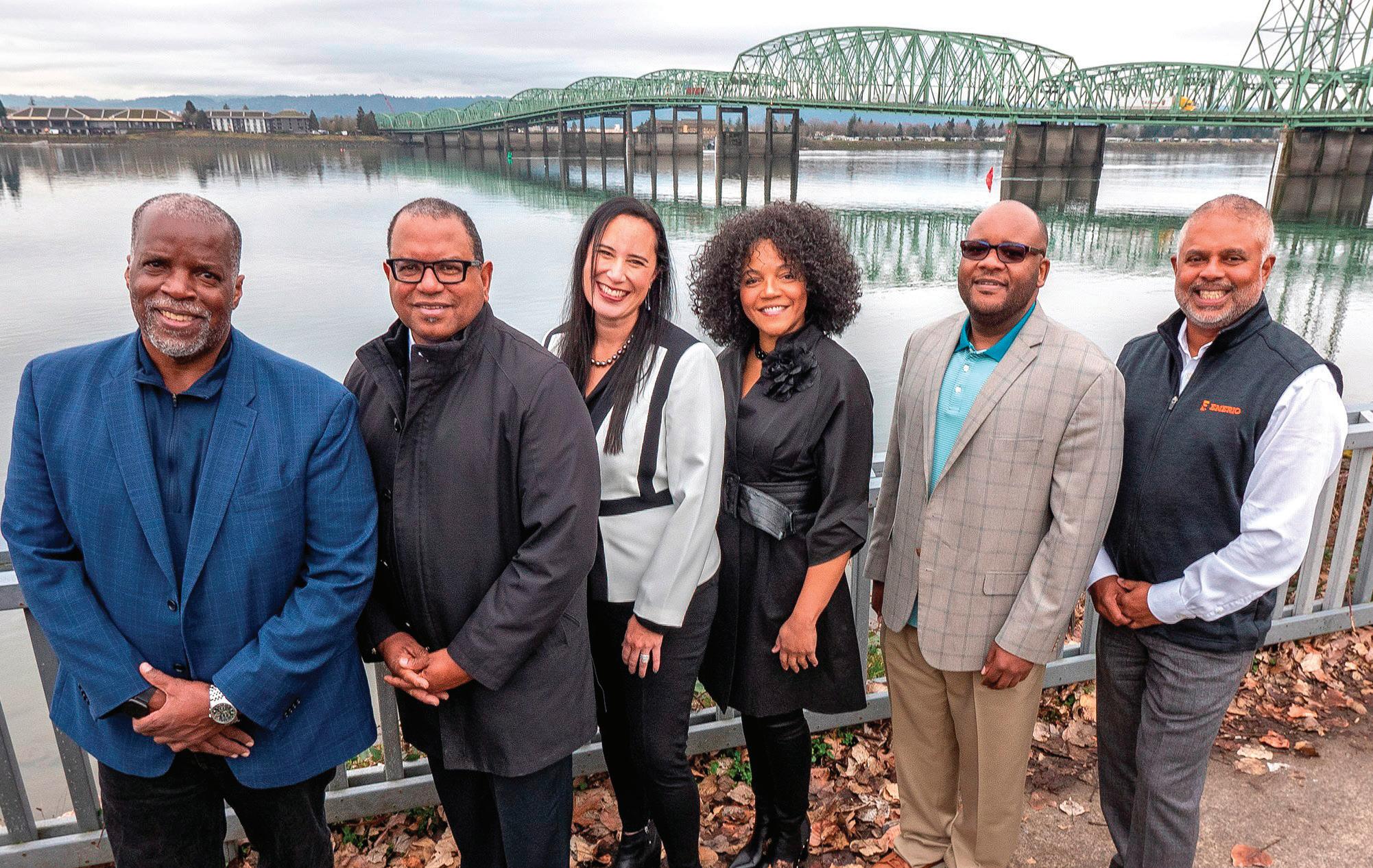

18 / SPRING 2022
(from left) Greg Johnson, Program Administrator, IBR program; André Baugh, owner, Group AGB Ltd; Lisa Keohokalole Schauer, owner, Point North Consulting Inc.; Millicent Williams, regional director, Otak; Johnell Bell, owner, Espousal Strategies; Neil Fernando, owner and principal, Emerio Design. (Photo credit: Interstate Bridge Replacement program-interstatebridge.org)
is at the center of infrastructure projects.”


One of the first initiatives Johnson pursued since joining the IBR program was setting up an Equity Advisory Group and a Community Advisory Group to support ongoing communications with representatives from diverse communities and business organizations. The two groups, along with the Executive Steering Group, are helping to ensure input and collaboration from community stakeholders from the earliest stages of the program. The Equity Advisory Group hosts monthly public meetings on the Zoom platform that are live streamed to the IBR program YouTube Channel. “These groups are helping ensure that our process for the program and the outcomes we achieve have equity and participation from the community,” Johnson said.
Another step the program is taking to maximize equity is the addition of two key positions, a principal equity officer and a principal climate officer. The two positions will work to enhance small business and workforce participation, and to ensure environmental impacts are minimized and equally shared by the entire community. A significant part of small and diverse business participation involves finding strategies to breakdown construction projects into sizes
smaller businesses can perform successfully and to provide Disadvantaged Business Enterprise and Small Business Enterprise support services to help companies be prepared when opportunities are available. “A part of our overall strategy is to have very robust DBE participation on this project, and to right-size contracts to optimize DBE opportunities to be prime contractors,” Johnson said.
Although the program is in its initial stages, equity efforts are taking shape. The program’s general engineering consultant WSP began work in 2020 with a commitment of 15% DBE participation for their team. To date, WSP has achieved nearly 19% participation by partnering with DBEs performing services such as engineering, environmental consulting, communications, government affairs and utility relocation services.
Johnson knows the keys to success for the IBR program’s equity goals come from the ongoing commitment of leadership from ODOT and WSDOT, the participation of community
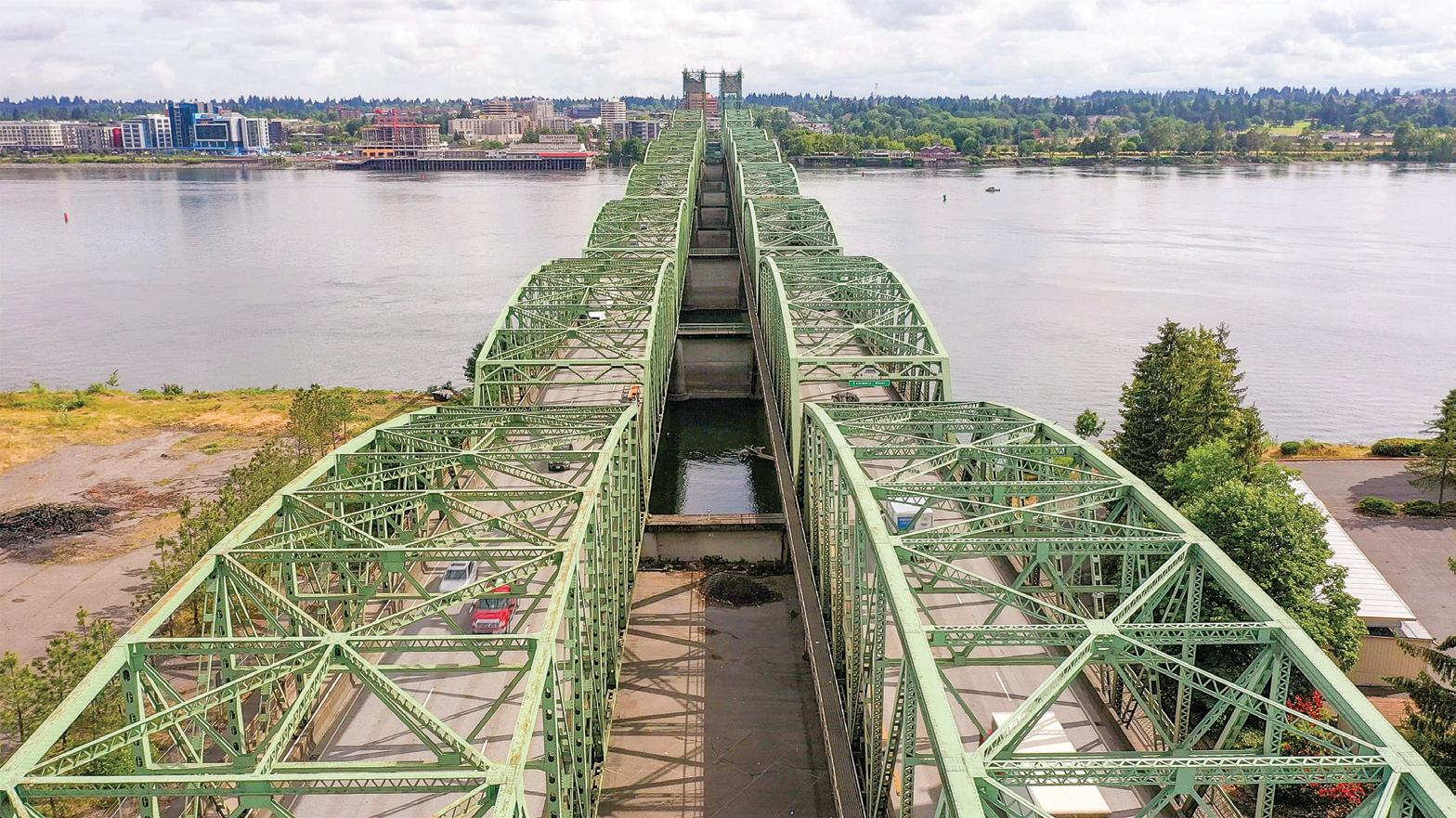
stakeholders, and the performance of the IBR program team to produce results. He also believes he brings the expertise, experience and passion to bring it all together. Johnson said: “I think I can make a difference here. I can take all my experience and pull all these things together to create this opportunity for folks that look like me to see ourselves in a project of this size. Our goal is to create a national model and template for how to implement best practices for completing a mega transportation project.”

19 / SPRING 2022
The Interstate Bridge Seen from Portland, Oregon looking north towards Vancouver, Washington. (Photo credit: Interstate Bridge Replacement program-interstatebridge.org)
(from left) André Baugh, owner, Group AGB Ltd (DBE); Greg Johnson, Program Administrator, IBR program; Lisa Keohokalole Schauer, owner, Point North Consulting Inc. (DBE). (Photo credit: Interstate Bridge Replacement program-interstatebridge.org)

Law / Public Policy Consulting Disparity Research / Disparity Studies Supplier Diversity Program Management Integrity Transparency Service 235 Peachtree Street, N.E. | Suite 400 | Atlanta, Georgia 30303 | Phone: 404-584-9777 | Fax: 404-584-9730 | GSPClaw.com





P R O V I D I N G I N N O V A T I V E C O M P L I A N C E S O L U T I O N S Supplier Diversity Programs DEI Programs & Action Plans Small & Local Business Programs Certification Services info@gcapservices.com (714) 800-1795 www.gcapservices.com Labor Compliance Services Software Implementation Celebrating 25 Years of Compliance Excellence

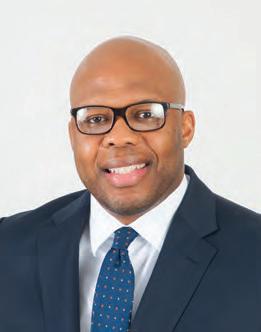
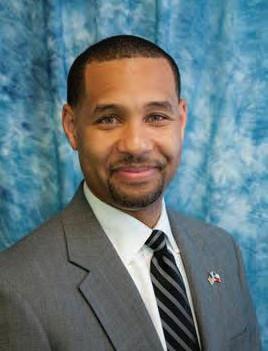


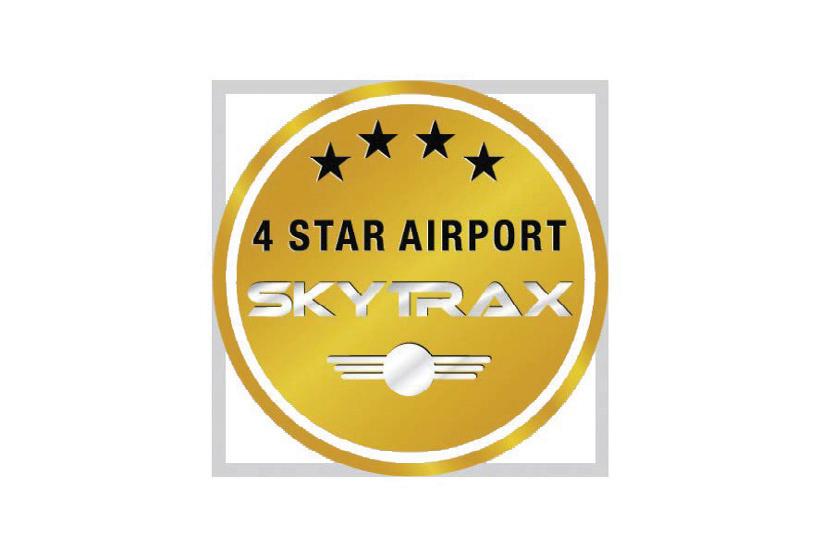

Houston Airports Business
Diversity Matters to
Mario Diaz J’Maine Chubb
Liliana Rambo
Management Officer Director of Aviation Jason McLemore Deputy Assistant Director
Houston is proud to accommodate your air travel with two international airports and remains the ONLY city in the Western Hemisphere with two four-star rated airports! www.fly2houston.com/biz/opportunities/office-of-business-opportunity Chief Financial Officer Chief Terminal
Rhonda Arnold Chief Community & Business Affairs Officer
Relationships Are The Key To Success
Onyx Enterprise CEO says that keeping focus is critical in challenging times
By Peggy Beach
From the age of 17, Tarolyn Buckles knew she wanted to own her own engineering firm. “I have always loved math and science,” said Buckles – CEO of Onyx Enterprise Inc. “I love numbers and statistics. I have also been inspired by my many mentors.”
Onyx Enterprise Inc., (onyx-enterprise. com) is a certified Woman/Minority-owned small business headquartered in Detroit, Michigan, with offices in Cleveland, Ohio, and Atlanta, Georgia. The company, founded in 2007, provides engineering consulting, project management and construction management services to local, state, federal government, engineering consulting firms and contractors. Onyx has completed services on construction projects worth more than $600 million. The firm’s signature project is the I-94 Modernization Program with the Michigan Department of Transportation (MDOT). In 2019, Onyx was named one of Michigan’s 40 Companies to Watch by Michigan Celebrates Small Business. Also in 2019, Buckles was named a Notable Woman in STEM by Crain’s Detroit Business.
Training Employees and Having a Business Plan Helps Keep Business Focused


Buckles said that one of the first things an entrepreneur should do for a new business is to complete a business plan. “A business plan should not sit on a shelf; it is a working document,” she said. “Be sure to include a vision, a mission. The plan should have an extensive marketing component for getting clients and a financial forecast for at least five years.” She suggested that business plans should be reviewed quarterly and the financials should be reviewed monthly. “I would also suggest including a dashboard of measurables to track how well the business is going,” Buckles said.
Having trained employees is also important for long-term business success. Employees at Onyx are certified by a number of organizations, including the State of Michigan and Wayne County. Buckles herself has participated in several training programs through Goldman Sachs and the Small Business Administration (SBA’s) Emerging Leaders program. She said, “We want our clients to know that our employees are highly qualified and experienced.”
“Your Network is Your Net Worth”
Businesses also must prepare to face challenging times – the recent pandemic being a good example. “We stayed focused during the pandemic because of our client
diversity,” Buckles said. “We met with clients and continued to send out proposals. We focused on relationships.”
Relationships are in fact a key to her success. Buckles said: “Your network is your net worth. I worked for MDOT while in college, and I worked at several major firms before starting my own firm. I saw projects from beginning to end. I kept the relationships along the way.”
She also said that establishing partnerships with mentors is essential for business growth. “I have had mentors my whole career. It is a partnership. You can learn from each other and from other businesses. I have gained so much from my mentors starting with my first job at MDOT. She (Buckles’ mentor)
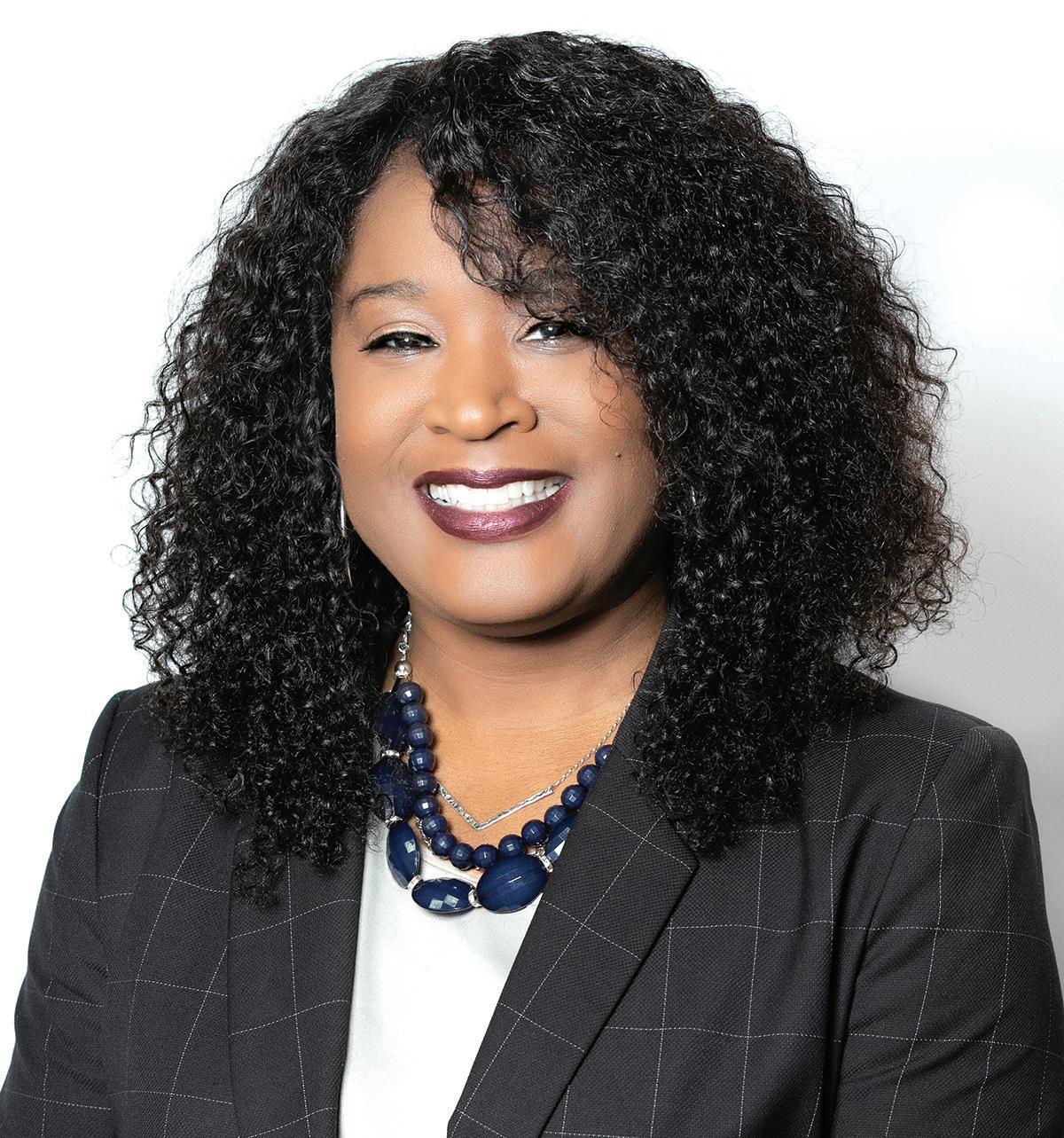
23 / SPRING 2022
DBE
Power Player
Tarolyn Buckles, President & CEO, Onyx Enterprise Inc.
left MDOT to start her own firm and I was influenced by that.”
Buckles encourages other entrepreneurs to get involved in their industry’s organizations; and she practices what she preaches. Currently a member of the Society of Women Engineers, the National Society of Black Engineers, the American Society of Civil Engineers, and the National Organization of Minority Architects, Buckles also cofounded the National Association of Minority Consulting and the Coalition of Minority Professional Engineering Societies. “You are not an island by yourself,” she said.
“Go to conferences and association meetings,” she said in an interview with the P3 Project Podcast. “Take on a leadership role, serve on committees and develop policies. That is how you develop your network.” Buckles said that business owners also should develop relationships with banks, attorneys, trust and estate plan advisors.
“One of the biggest resources throughout my career has been the SBA programs,” Buckles said. “SBA includes a forum with small business owners and many opportunities for grants, projects and speaking engagements.” Staying connected also means that more resources are available and accessible for small businesses in search of them.
Buckles believes that in order to remain competitive in the world, the U.S. needs to put more emphasis on STEM (Science, Technology, Engineering and Math) education. She cited her own education as an example. “I was exposed to math and science at an early age,” she said. “I participated in many of the Detroit area pre-college tech programs in the local schools, at the University of Michigan and at some of the HBCU’s in Michigan. I was able to develop leadership skills and confidence. It was very influential in steering me to my field. Just being on a college campus was inspiring to me.” Buckles said that local community colleges are an excellent resource for teaching of skilled trades. “This training needs to be increased,” she said.
The University of Michigan graduate finds that helping others in the engineering field is her great passion. A member of the University of Michigan Civil Engineering Alumni Board, Buckles meets with her mentees at least twice a month. “I find I learn as much from them as they do from me,” she said.
Buckles called 2022 “an exciting time for civil engineers.” The success of the recent
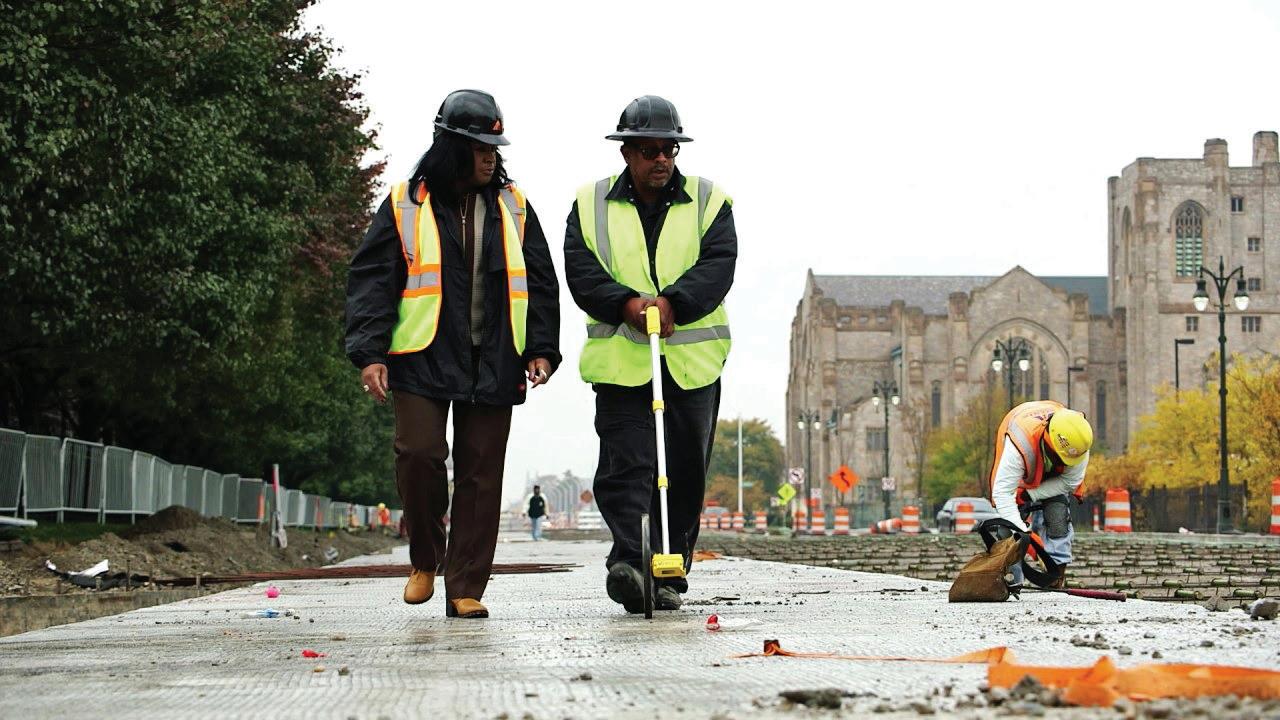

federal infrastructure legislation means that Onyx is reaching out to other major firms.
“We are establishing those relationships that will be necessary in the coming years,” she said. “We are elated with the recent bill. The nation’s infrastructure has needed rebuilding for a number of years.”
Buckles shared that when starting a new business, entrepreneurs should be ready to
do the work and should make sure that all employees are trained as well as certified. “The keys to a successful company are having the right people, the right processes, and the right financials in place,” she said.
Building a new business takes hard work and patience, Buckles said. “You want to do your business so well that your name speaks for itself.”
24 / SPRING 2022
WANT MORE? Check us out at: www.AmericanDBE.com More of the info you need from the source you trust.
Tarolyn Buckles (left) walks with construction inspector Damian Welborne along the M-1 Rail Q-Line project in Detroit while filming a PBS interview during 2017.
400+ Firms mentored by Austin have received contracts exceeding $3 billion.
Austin Commercial is committed to recognizing, embracing, and supporting workplace diversity. As a construction industry leader, Austin takes pride in creating minority economic opportunities.
www.austin-ind.com



26 / SPRING 2022 ENGINEERS, LLC AVIATION CONSTRUCTION MANAGEMENT ENVIRONMENTAL TRANSPORTATION DESIGN D I S A DVANTAGEDBUSINESSENTERP R I ES IL , TX, GA , IN&IA ENGINEERING CONSULTING SERVICES CKL Engineers, LLC 312-763-2989 CKLENG.COM
The I-64 Hampton Roads Bridge-Tunnel in southeastern Virginia has long been one of the region’s most congested corridors. The existing 3.5-mile facility consists of two 2-lane immersedtube tunnels on artificial islands, with trestle bridges to shore. These tunnels opened in 1957 (current westbound lanes) and 1976 (eastbound lanes) and are approximately 7,500 feet long.
Traffic on these four lanes exceeds 100,000 vehicles per day during peak summer traffic.

The Hampton Roads Bridge-Tunnel Expansion Project will ease this congestion with the addition of twin 2-lane bored tunnels just west of the existing eastbound tunnel. Also, the 4-lane segments of the I-64 corridor in the cities of Hampton and Norfolk will be widened.

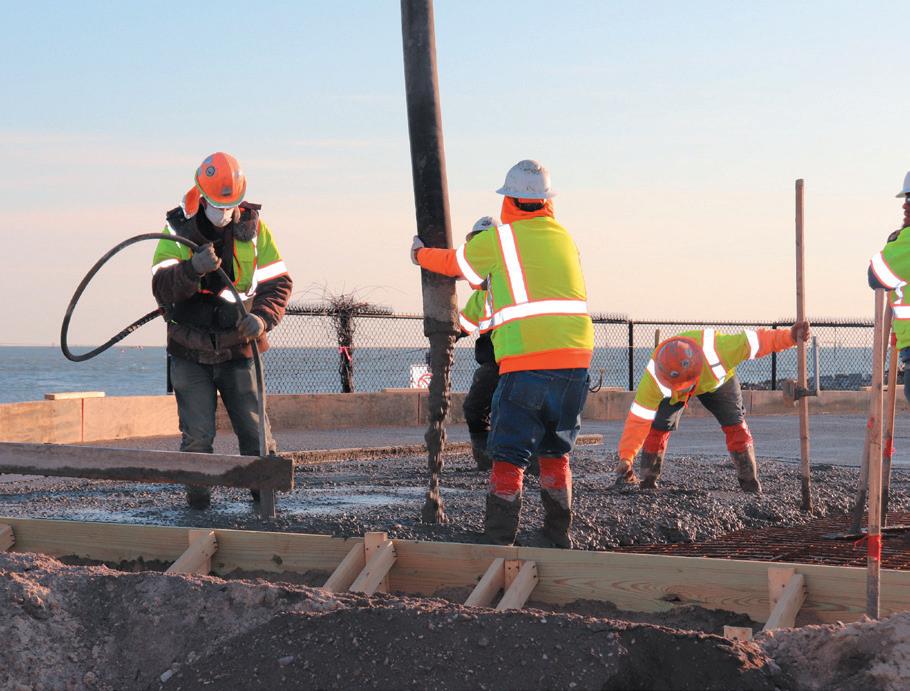
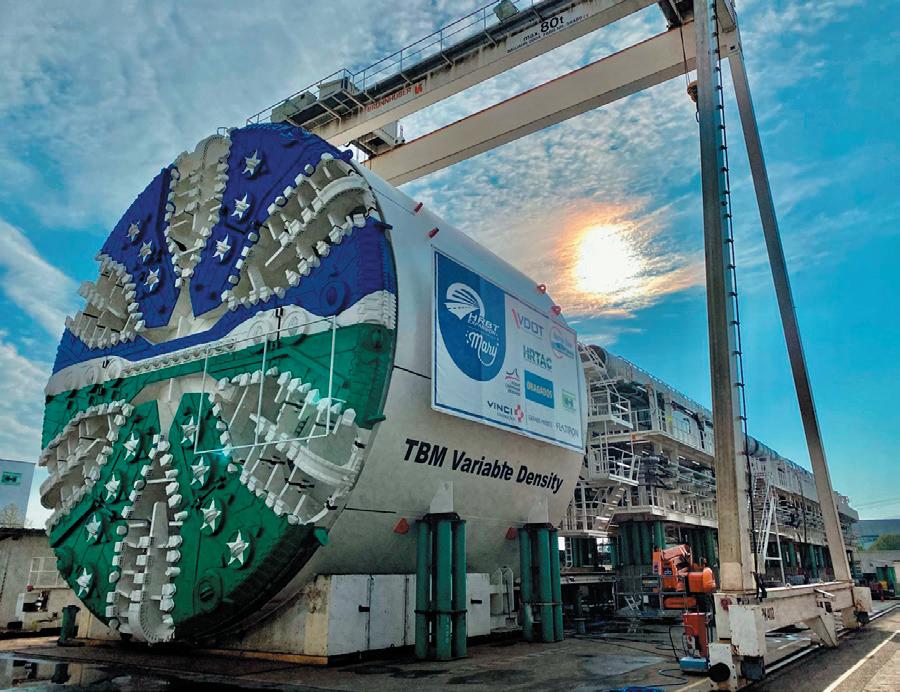

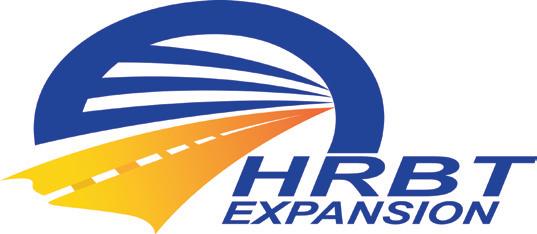
27 / SPRING 2022
Hampton Roads Connector Partners | 240 Corporate Blvd. | Norfolk, VA 23502 | 757-578-9284 HAMPTON ROADS CONNECTOR PARTNERS IS AN EQUAL OPPORTUNITY EMPLOYER OVER $300 MILLION IN PROJECT OPPORTUNITIES FOR DBE AND SWaM FIRMS HAMPTON ROADS CONNECTOR PARTNERS invites you to be a part of VIRGINIA’S LARGEST TRANSPORTATION PROJECT Visit the project’s website at www.hrbtexpansion.org to stay up to date on opportunities. WORKFORCE PARTICIPATION GOALS FOR LOCAL MINORITY AND WOMEN JOB CANDIDATES ON THE JOB TRAINING OPPORTUNITIES
Port Authority of New York and New Jersey:
RAISING THE BAR
By Laurie D. Willis
on MWBE Utilization
The terms diversity, equity and inclusion – or DEI – are ubiquitous; appearing prominently on programs, panels and marketing materials at job fairs, outreach sessions and professional conferences across the country. And since the unrest from 2020 in response to numerous high-profile encounters that heightened racial tensions, even more
companies have increased their corporate social responsibility (CSR) and DEI efforts.
The Port Authority of New York and New Jersey (PANYNJ) has been practicing DEI efforts for decades. What’s more, unlike some companies and organizations that simply give lip service to DEI, the Port Authority has statistics to back up its claims. In 2018, the PANYNJ did something virtually unheard of: set an ambitious goal of 30% utilization for Minority-Owned, Women-Owned Business Enterprises (MWBE) for work being done at LaGuardia Airport.
Broken down as 20% for Minority Business Enterprises (MBEs) and 10% for WomenOwned Businesses (WBEs), or 30% collectively, the goal has been paying off for businesses that don’t always get their fair share. And just last November, New York Gov. Kathy Hochul announced in a press release that the Port Authority of New York and New Jersey had awarded a record $2 billion in contracts to MWBE firms.
“Today’s milestone is enormously significant as we work toward a more inclusive and equitable economic recovery, and it is in keeping with our nation-leading goal to increase Minority- and Women-Owned Business Enterprises’ participation in public contracts to 30%,” Hochul said in the release dated Nov. 21, 2022. “I commend the Port Authority for its commitment to breaking down barriers and leveling the playing field so that minority- and women-owned business have access to one of the nation’s greatest infrastructure projects at LaGuardia Airport.
“As one of the nation’s leading transportation agencies, the Port Authority is demonstrating what can be done to create more equity in our society and make sure that
the economic benefits of great infrastructure projects reach all of our communities,” Hochul continued in the release.
Hersh Parekh, director of government and community relations for New York with the PANYNJ, said the company currently has two, public-private partnerships underway at LaGuardia Airport: one for the development and construction of a new terminal B with LaGuardia Gateway Partners and another for the development and construction of a new terminal C, with Delta Airlines.
“Our 30% collective goal was based on a disparity study that the Port Authority did in 2017, which showed that the utilization of MWBEs did not match the availability of MWBEs,” Parekh said. “Based on that disparity study, we increased our goal to 30%. Prior to that it was 15%.”

To eliminate any doubt about whether they were serious, PANYNJ officials wrote the goals for hiring minority- and womenowned businesses into lease agreements with developers, Parekh said.
“There was very strong language to ensure those goals were taken very seriously and that the developer met those goals,” he said. “We worked with the developers to support them in those efforts, including looking at different contracts to see if there were ways to de-bundle them to make them more accessible to MWBEs, which are not always the largest firms. We also worked with the developers to give them a list of certified, qualified diverse contractors. They were required to engage in certain outreach efforts, and we’d ask them to show us what efforts they made to find them.”
Changing the culture within an organization and awarding significantly more contracts

28 / SPRING 2022
PROGRAM SPOTLIGHT
Hersh Parekh, director of government and community relations for New York with the PANYNJ
to minority- and women-owned businesses doesn’t happen overnight. Like so many other companies responding to demands for racial equity and change, the Port Authority established a steering committee in June 2020 to examine and address elements of race dynamics within the agency, according to information provided by Senior Public Information Officer Alana Calmi.
Approximately 2,400 employees across the Port Authority, including union employees and Employee Business Resource Groups (EBRG), participated in 30 listening sessions, which produced comments and recommendations to improve workplace culture, diversity and fairness at the Port Authority – both as an agency and at its facilities.
Calmi said the working groups identified immediate, short- and long-term recommendations and initiatives in six key focus areas that can lead to real change, including:
• Evolving Port Authority culture
• Manager and employee development

• Transparency regarding Human Resources practices and functions
• Police diversity and enhanced best practices
• Establishing the PANYNJ as a good community neighbor; and
• Demonstrating a commitment through policy.
Parekh, who has worked at the Port Authority for two years, said DEI has long been a focus at the agency and the company has an entire office that focuses, not exclusively, but largely on ensuring there are diverse businesses working on direct contracts issued by The Authority and on contracts issued by private developers. The 30% goal applies to both types of contracts, he said.
“You often hear about these things with respect to diversity, equity and inclusion, but the Port Authority is demonstrating that it’s possible to achieve it,” Parekh said. “But you have to work, and you have to take people out of their comfort zone. Developers will usually go with what they’ve been doing in the past and who they’ve been working with in the past. You have to expand that universe, think broadly and think creatively to achieve these goals. To the credit of our developers, they’ve committed to doing this and are achieving these goals.”
To ensure they reach their 30% benchmark, Parekh said the PANYNJ has put certain initiatives in place, including mentor-protégé programs, architect and engineer academies and project readiness boot camps – all of which gives MWBEs resources, training and networking opportunities to compete for contracts.
Contracts aren’t simply given to them but instead must be earned.
Construction at LaGuardia Airport Terminal B in April 2018. PANYNJ set a goal of 30% utilization for Minority-Owned, Women-Owned Business Enterprises (MWBE) for work being done on this project.
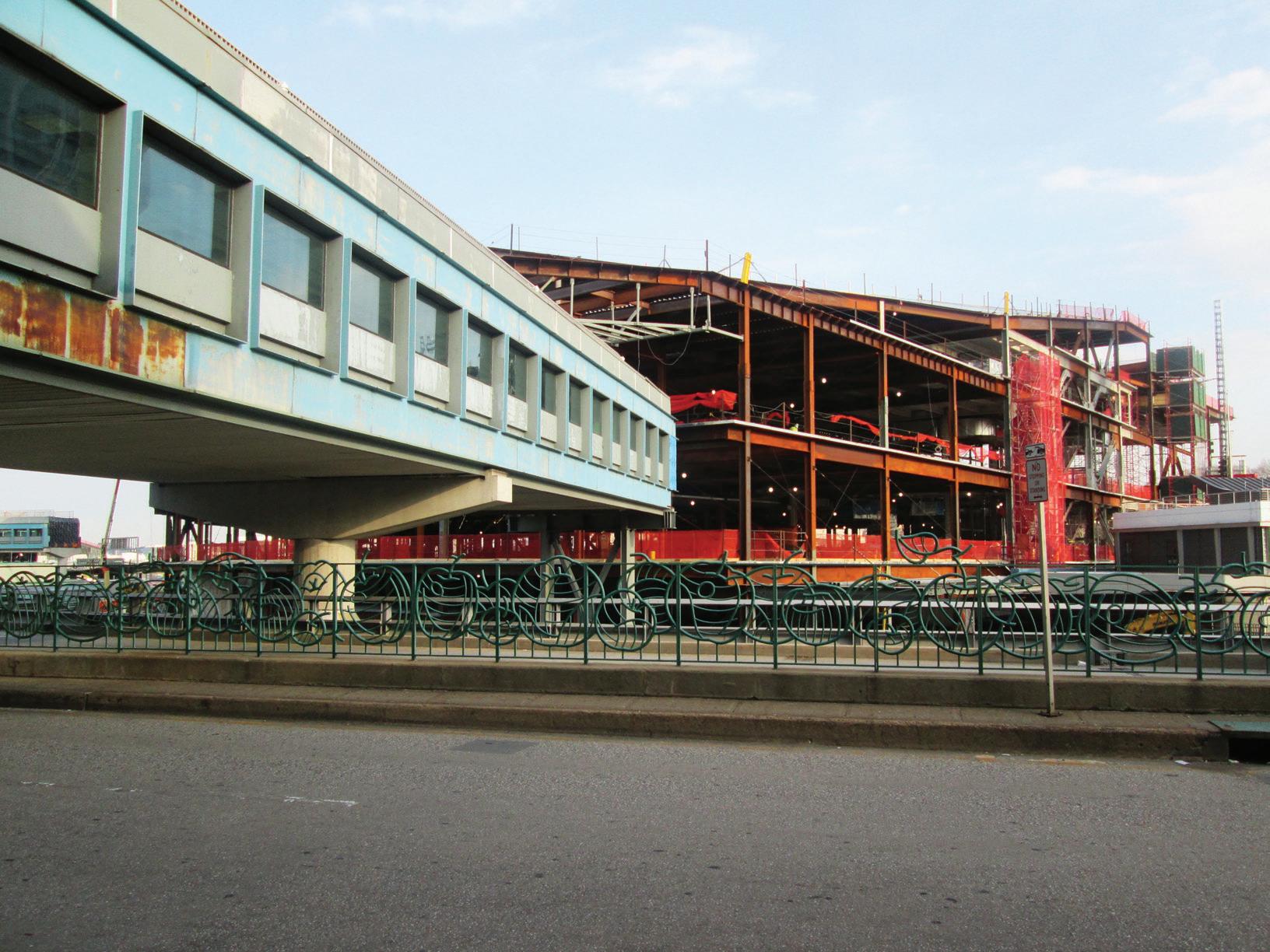
(Photo credit: Epicgenius)
Parekh said Port Authority officials aim to achieve the same level of success with the JFK Redevelopment Project, which is in its early stages, and groundwork is being laid to that end.
“With PANYNJ leadership, our private partners and work we’re doing in the community, we hope to be able to not just meet, but surpass, the $2 billion,” he said. “One piece of the JFK Project started preCOVID then went on pause, and we’re just now picking it up again. Also, we started a second project at JFK back in December and expect to start a few more this year.”
Parekh said it’s gratifying to work for a company at which everyone – from the chairman on down – wants to achieve diversity, equity and inclusion.
“Our executive director and our chairman both drive this goal as leaders of our agency,” he said. “Our executive director always says, ‘You don’t get any credit for efforts. You get credit for results.’ Our results help us go out into the community and show that the work we’re doing is successful. There’s always going to be room for improvement, and we can always do it better. There’s no doubt about it. But it’s good to be able to show the work we’re doing and that the strategies we’re implementing are bearing results.”
In conversations with elected officials, Parekh points to PANYNJ’s numbers – which make the case.
29 / SPRING 2022
“Ultimately, it’s all about the numbers and the results that make the job of selling some of these projects a little easier,” he said. “These projects are very impactful in the communities in which they occur, and we’re going to work hard to ensure some of the economic benefits from these projects flows to some of these communities that are impacted.”
Despite the heavy praise from Hochul and the $2 billion milestone, Parekh is quick to say Port Authority of New York and New Jersey officials aren’t resting on their laurels, adding that until the utilization of MWBEs matches their availability, there’s still work to be done.


“We know that during COVID a lot of MWBEs went out of business because they were not able to survive the pausing of any projects,” he said. “As long as there is that disparity, it’s important to keep our focus on this goal. If down the road despite our efforts the disparity continues, and it could be because of more MWBEs opening their doors, that may result in another disparity study where we analyze it and say our goals need to change because of this new reality.”

30 / SPRING 2022
Don’t Miss A Single Issue Subscribe Today! Visit us at: www.AmericanDBE.com
George Washington Bridge, spanning the Hudson River between New York City and New Jersey. The bridge is managed and controlled by the Port Authority of New York and New Jersey.

Airports and Car Rental Companies Partner to Increase ACDBE Opportunities

For more than a decade, federal administrators, airport DBE Program administrators and Airport Concession Disadvantaged Business Enterprises (ACDBEs) have worked with major car rental companies to find common ground on strategies to increase business opportunities at U.S. airport locations. Efforts over the years include additional guidance issued by the Federal Aviation Administration, a whitepaper published by the Airport Minority Advisory Council (AMAC) and panel discussions at AMAC’s Business Diversity Conference. While these and other initiatives made an impact, work remains to be done.
This challenge of creating new strategies and creative ways to increase ACDBE opportunities in the car rental industry led a group of airport DBE liaison officers to uniting to create an outreach program to bring car rental companies together with ACDBEs on a local level – to discuss opportunities and make connections.
The group of airport DBE liaison officers, called the Airport Business Development Group, formed a partnership to host the first Airport Rental Car Supplier Diversity Outreach Day in 2019. The initial program included 30
airports hosting simultaneous outreach meetings across the country connecting car rental company representatives with ACDBE firms seeking business opportunities. The first event was successful, and the Airport Business Development Group officially made the program an annual event going forward. The group has planned the event each year since 2019 and helps participating airports prepare to host individual outreach meetings at their respective location.
The annual event seeks to address a challenge recognized by the Federal Aviation Administration regarding the federal ACDBE Program for car rental companies. While ACDBE regulations do not require car rental companies to change their corporate structure to provide for direct ownership arrangements with ACDBEs to meet ACDBE goals, they do require airports to “rigorously review the quality, quantity and intensity of the good faith efforts made by the car rental companies to meet their ACDBE goal on a regular basis to ensure compliance.” Oftentimes, these good faith efforts are met by extending opportunities to ACDBEs for goods and services used by car rental companies for daily operations.
Based on this challenge, airports and car rental companies across the country often work together to identify opportunities for ACDBEs. Since most major U.S. airports receive federal funding through the FAA Airport Improvement Program (AIP) in the form of grants used for airport development
and planning projects, they are required to administer the ACDBE and DBE Programs, creating opportunities for diverse firms to participate in airport concessions and development projects.
Airports receiving AIP funding must create and pursue two ACDBE goals. The first goal is for all airport concessions except car rental companies, and the second goal is for car rental companies operating on airport property. Each goal period covers three years, and airports must report their accomplishments to the FAA annually. This goal for non-car rental concessions primarily covers businesses such as food and beverage concessions, retail concessions and specialty concession operations; and often involves ACDBEs having some ownership interest in the concession business. The Airport Rental Car Supplier Diversity Outreach Day is an initiative to help airports achieve their ACDBE goals for car rental companies.
2022 Airport Rental Car Supplier Diversity Outreach Day
This year’s Airport Rental Car Supplier Diversity Outreach Day took place April 26 at airports nationwide, boasting the highest attendance of participating airports thus far.
“This year we had 74 airports to host an outreach program,” Airport Senior Planner and DBE Program Coordinator at Salt Lake City International Airport Raymond Christy said. Christy has worked on the committee to plan the event each year since its inception. The participating airports, through their local program, partnered with car rental companies operating at their airport to discuss upcoming and potential various business opportunities with ACDBE firms and small businesses that can become certified as ACDBEs. Some of the companies participating locally with airports included Hertz, Avis, Enterprise, National, Alamo, Fox, Thrifty and Dollar.
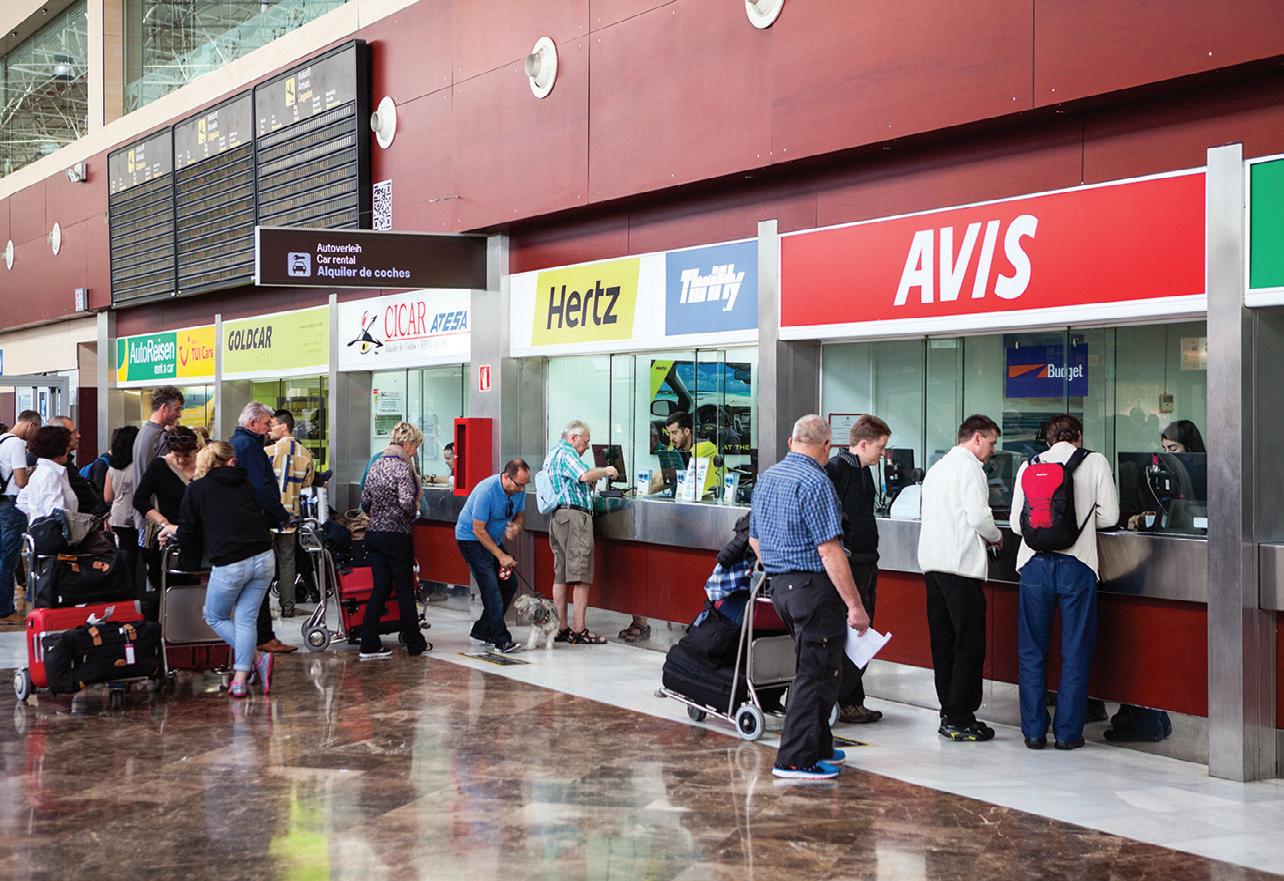
32 / SPRING 2022 AIRPORTS
The hybrid event included airports hosting a combination of in-person and virtual meetings across six time zones. The program gave business owners information on learning how to grow their businesses, and providing quality products and services to rental car companies. Small business representatives learned about opportunities for a variety of good and services used by car rental companies such as fuel, tires, car detailing, window repair, staffing, collision repair, cleaning and advertising. Business owners also learned about the ACDBE certification process and other beneficial supplier diversity certifications.
The planning committee added an additional component to this year’s event by partnering with AMAC to host a nationwide meeting to highlight industry-wide strategies to increase opportunities for ACDBEs and to hear from industry thought leaders and car rental company representatives discussing their initiatives to advance policy and legislative actions to increase opportunities.

Prior Year Success Stories
Previous Airport Rental Car Supplier Diversity Outreach Days have produced wins for DBEs, ACDBEs, and non-certified business owners. A few examples of ACDBE success include:
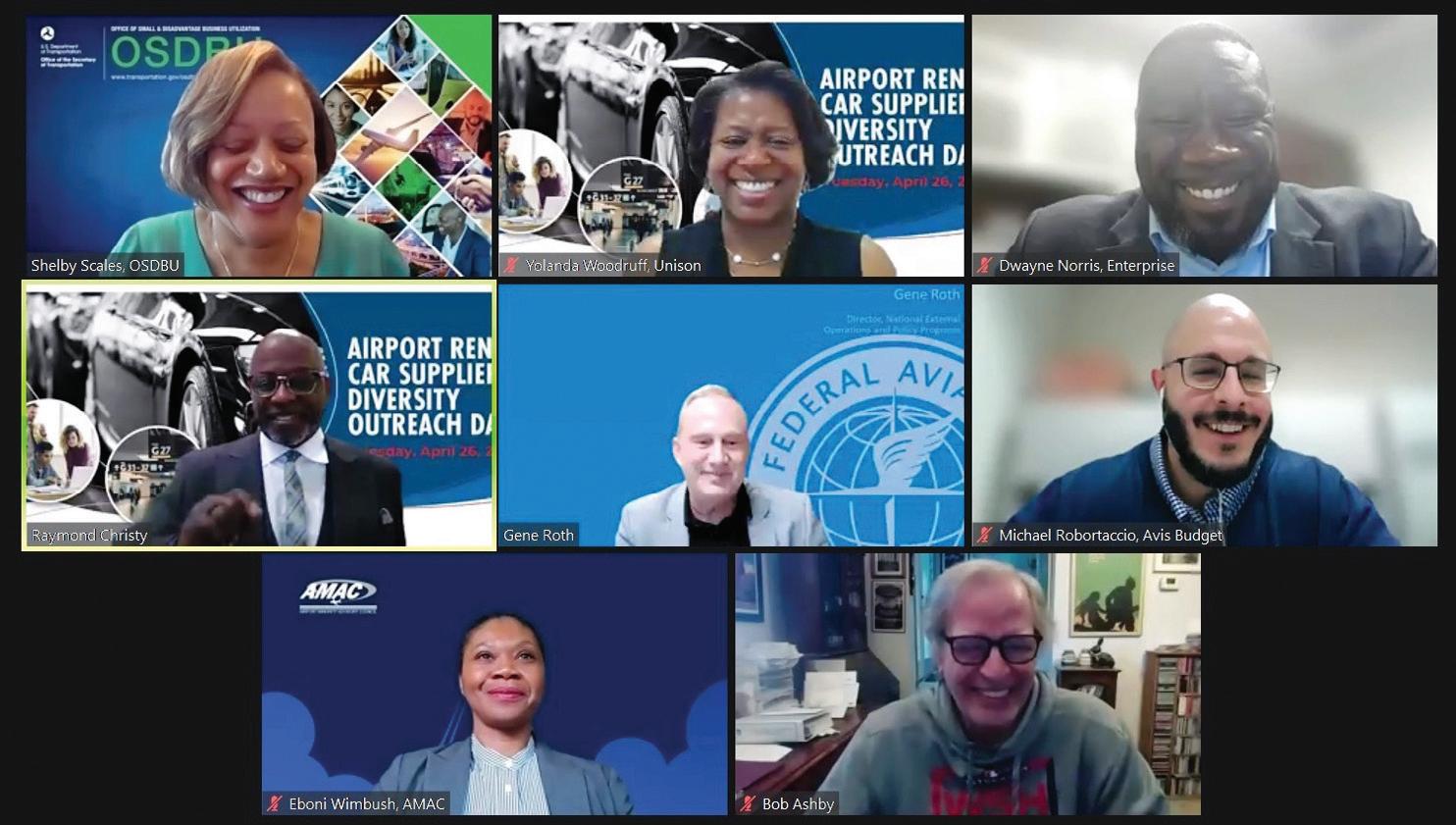
• Austin-Bergstrom International Airport - Two body shops received contracts with rental car companies.
• Birmingham-Shuttlesworth International Airport - One ACDBE received a contract to sell chemicals to a car rental agency, while another rental car company engaged with a DBE that could supply them with tires.
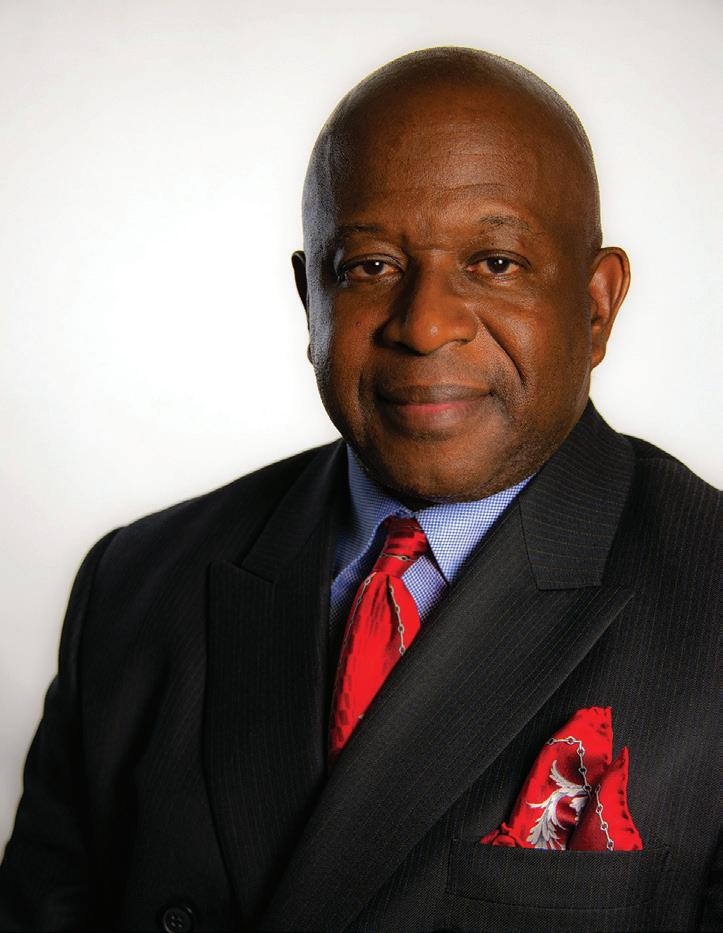
• Columbia Metropolitan Airport - A certified business gained business opportunities with three rental car agencies; and another business gained a contract with a rental car company to supply their goods to 40 locations.
• Tampa International Airport - A business owner met with one of the attending rental car agencies after the event for contract negotiations.
Although the video from the national meeting is not available online, ACDBEs and potential ACDBEs should reach out to their local airport DBE Program officer to inquire about upcoming opportunities with car rental companies in their airport.
Airport Rental Car Supplier Diversity Outreach Day panelists discuss strategies to increase opportunities for ACDBEs in the industry. (Top row from left) USDOT Director of the Office of Small and Disadvantaged Business Utilization (OSDBU) Shelby M. Scales, Unison Consulting Director of Retail Operations Yolanda Woodruff, Enterprise Holdings Corporate Supplier Diversity Manager Dwayne Norris. (Second row from left) Salt Lake City International Airport Senior Planner and DBE Program Coordinator Raymond Christy, FAA Director of the National External Operations and Policy Programs Gene Roth, Avis Budget Group Senior DirectorGlobal Strategic Sourcing and Procurement Michael Robortaccio. (Bottom row from left) AMAC President & CEO Eboni Wimbush, Former Deputy Assistant General Counsel for Regulation and Enforcement Robert C. Ashby.
33 / SPRING 2022
Salt Lake City International Airport Senior Planner and DBE Program Coordinator Raymond Christy
IndyGo Helping DBEs GROW
The Indianapolis Public Transit Corporation (IndyGo) manages public transportation services in the City of Indianapolis, Indiana, serving more than 9 million passengers each year.
The agency provides 30 different routes of services and broke ground on its second Bus Rapid Transit (BRT) line in spring 2022. The new Purple Line will extend 15.2 miles between Indianapolis and the City of Lawrence, traversing several neighborhoods – traveling past major employers, cultural institutions, healthcare and educational facilities. IndyGo launched its first BRT line in 2019, called the Red Line; and is already planning for a third BRT line, the Blue Line, beginning construction in 2024. These expansion activities create opportunities for Disadvantaged Business Enterprises (DBEs) to participate in design and construction opportunities arising from these federally funded projects.
“The start of Purple Line construction symbolizes the beginning of new opportunity and growth for an entire community,” said IndyGo President and CEO Inez Evans in a press release. “We know this project will bring unprecedented renewal and phenomenal transformation as residents take advantage of the opportunity to move forward faster.”
IndyGo’s capital development program, ongoing operations and maintenance requirements create the need for greater outreach to the small and diverse business community to achieve the agency’s inclusion goals from DBEs and other underutilized businesses. While federally funded projects fall under the agency’s DBE Program, all other procurement activities fall under its XBE Program, which includes businesses owned by minorities, women, military veterans, and disabled individuals. IndyGo currently
IndyGo President and CEO Inez Evans speaks at the Purple Line Groundbreaking Ceremony in February 2022. (Photo courtesy of IndyGo)

has a 10% DBE goal for its federally funded projects, and a 27% goal for locally funded procurement activities.
IndyGo recognized the challenges smaller firms have with creating successful proposals to win contracts with IndyGo and worked with the procurement department to develop a program to help firms learn strategies to creating winning proposals. The agency launched the IndyGrow Vendor Development Program in 2021 and is offering the program to a new group of businesses in 2022. IndyGrow stands for Goals, Reality, Opportunities and Will; and aims to help businesses improve their proposal writing skills and learn more about the government contracting process through workshops, guest speakers, proposal writing and panel discussions.
Capital Development Opportunities

DBE and XBE firms will have significant opportunities to participate in IndyGo upcoming capital improvement projects as the agency continues to expand transit service and expand operations. Construction on the new $188 million Purple Line BRT route began in March 2022 with Bloomington, Indiana-based Crider & Crider Inc. serving as the civil contractor and F.A. Wilhelm Construction serving as the general contractor for the stations along the route. So far, the two contractors have DBE commitments of $9.6 million on contracts valued at $113 million. The Purple Line also has an 18% DBE commitment from lead designer WSP USA; and a 22% DBE commitment from construction manager Butler Fairman & Seufert.
“We are excited to award these contracts to local companies with proven track records of producing excellent work,” Evans said in a press release. “With this announcement, we’re finally signaling the long-awaited green light to move full speed ahead with the faster, more efficient transit and longoverdue improvements and upgrades to infrastructure along the 38th Street corridor, improving the quality of life for riders and residents.” Anticipated opportunities for DBEs during the two-year project include hauling, sanitary piping & sewer, supplies, video surveillance cameras, construction signs & pavement markings, steel, and utility construction.
34 / SPRING 2022
TRANSIT
Planning also has started on a new 24-mile Blue Line Bus Rapid Transit route scheduled to provide rapid transit service extending from east and west across the city of Indianapolis and terminating at the Indianapolis International Airport. The budget for the Blue Line is $288 million, and construction is scheduled to begin in 2023.
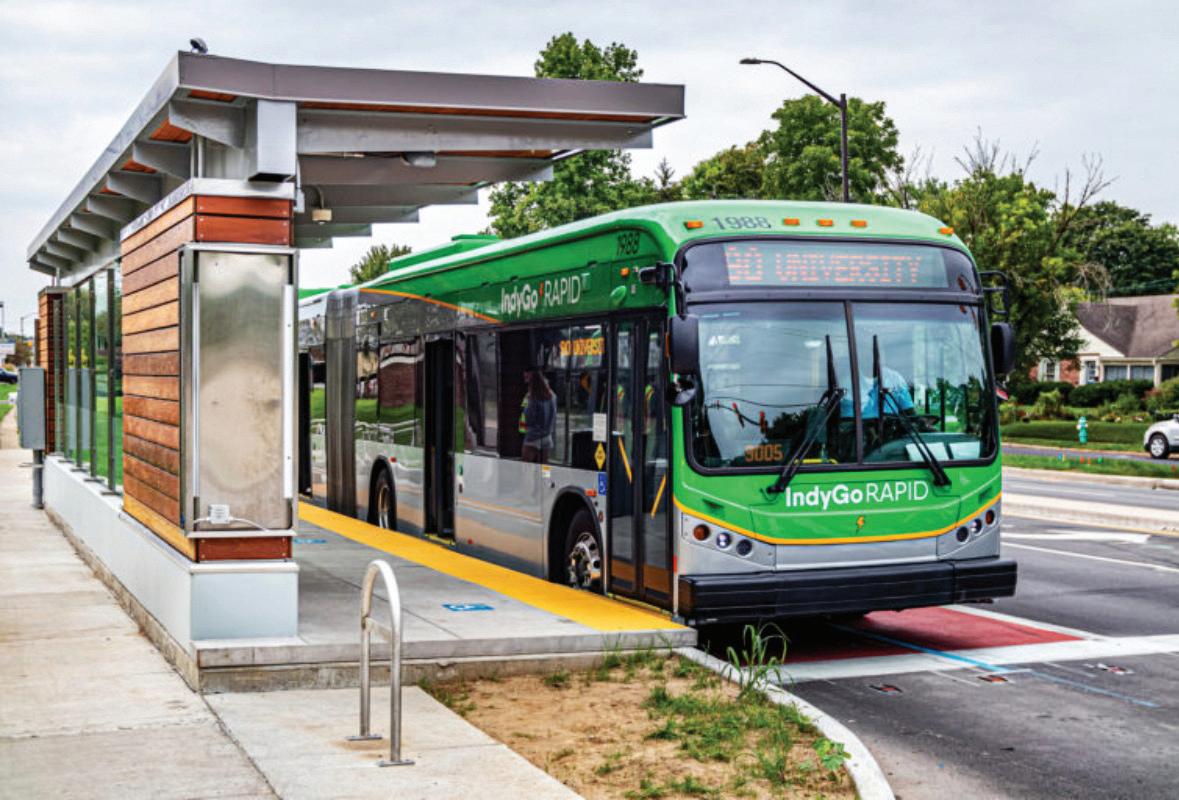
IndyGo is also preparing for the renovation and construction on an East Campus complex that will become the agency’s new headquarters. The renovated and newly constructed facilities include 110,910-squarefeet and consist of three buildings providing a training course for operators, multiple large public meeting spaces, and additional office spaces to maintain social distancing among employees. IndyGo plans to move employees into the facility during 2022.
Leadership Commitment to Equity
The growing success of IndyGo’s programs to support diverse businesses is a result of the support and engagement of leadership throughout the organization. As president, Evans joined the agency in 2019 with a commitment to make Diversity & Inclusion a cornerstone of her administration. Serving as the first minority woman to lead the agency, Evans takes an active role in supplier diversity initiatives and has a direct connection to the agency’s DBE Liaison Officer.

Women’s Transportation Seminar (WTS) International acknowledged Evans’ success in this area by naming her as a champion of transportation equity and presenting her the International Woman of the Year Award at its 2022 Annual Conference. This award recognizes leaders in the transportation industry who represent the best and brightest in transportation innovation, effectiveness and leadership and have made an outstanding contribution to the industry.
“Equity in transit is important, and I don’t take being a woman leading a transit agency lightly,” Evans said in her acceptance speech. “I especially don’t take being a Black woman leading a transit agency lightly. I’m one of only nine Black women transit CEOs in the nation.”
IndyGo’s Board of Directors also provides oversight and accountability for strong diversity and inclusion efforts. The sevenmember board requests monthly updates on the program’s progress to understand the existing challenges, current utilization, and subcontracting efforts of the supplier diversity team.
The agency is currently working on a new DBE goal for the 2023-2025 federal fiscal years. IndyGo has achieved its goal in two of the past three years, and only fell short in 2021 due to timing differences between the
reporting period and when DBEs received payments on work performed. This record of accountability regarding DBE and XBE firms is a key objective for CEO Evans and the IndyGo Board of Directors.

35 / SPRING 2022
An IndyGo all electric bus travels on the Red Line bus rapid transit route in Indianapolis, Indiana. (Photo courtesy of IndyGo)
Three IndyGo XBE Program participants completed the pilot IndyGrow program in 2021. (from left) Gauran Wason, Shirley West-Meeks and Laura Doyen completed the program teaching strategies to submit successful proposals on IndyGo contracts. (photo courtesy of IndyGo)
DOJ Files Grand Jury Indictment in DBE Fraud Case and Settles Another Case
The U.S. Department of Justice continued to pursue cases of fraud related to the U.S Department of Transportation’s Disadvantaged Business Enterprise and the federal Minority Business Enterprise programs in 2022 by filing a grand jury indictment against the former chief operating officer of a major St. Louis construction company – and agreeing to a settlement from two Illinois companies and the business owners. The two cases are clear examples of the ongoing issue of larger companies using



and women-owned businesses on federally assisted surface transportation work. Under the DBE regulations, only businesses independently owned and operated by a minority or woman may be certified as a DBE.
Former COO of Major Construction Firm Indicted
On Wednesday, March 30, 2022, a federal grand jury indicted Brian Kowert Sr., the former chief operating officer of HBD Construction, a general contractor based in St. Louis, Missouri, for five counts of wire fraud relative to his falsifying of Minority Business Enterprise (“MBE”) participation on several construction and redevelopment projects from 2014 through 2022.
companies by falsifying records to inflate MBE participation numbers on HBD projects. The MBE participation requirements on those projects sought to address historical, social and economic disadvantages experienced by minority group members to reduce minoritybased barriers to and foster participation by minority owned businesses.
The indictment alleges that Kowert Sr. used actual MBE certified companies simply as “front” companies to pass payments to non-MBE certified companies that had actually provided the labor and materials on the projects. The MBE certified companies neither performed work nor provided materials on the projects and had no actual contact with the non-MBE companies that actually performed the work and provided the materials. The MBE certified companies were paid a nominal fee by Kowert Sr. for acting as a “pass through” for the funds paid to the non-MBE companies.
smaller Disadvantaged Business Enterprise (DBE) and Minority Business Enterprise (MBE) firms as front companies to access contracts awarded to meet the goals of government agencies for the participation DBEs and MBEs in contracting opportunities.
The DBE Program reflects Congress’s intent to combat discrimination against minority
Kowert Sr. was an owner, executive vice president, and chief operating officer of HBD Construction Company. Kowert Sr. was also the project manager on numerous HBD construction and redevelopment projects in St. Louis and throughout the Midwest region. The indictment alleges that beginning in 2014, and continuing through early 2022, Kowert Sr. engaged in a scheme to defraud the City of St. Louis, the State of Missouri, and several HBD client
The indictment alleges that Kowert Sr. provided false information and false reports to the City of St. Louis, the State of Missouri, and several HBD client companies that falsely inflated the actual MBE participation numbers on three separate projects. Those projects were located in the St. Louis and Kansas City metropolitan areas.
The indictment alleges that Kowert Sr.’s scheme and false representations were an effort by him to meet City of St. Louis, State of Missouri, and HBD client company MBE participation requirements and goals. Kowert Sr. falsely reported hundreds of thousands of dollars as MBE certified work on the projects when, in fact, the work had been performed by non-MBE majority owned and staffed
36 / SPRING 2022
civil/highway
companies. The HBD client companies, the State of Missouri, and the City of St. Louis had no knowledge of Kowert’s alleged criminal conduct, and fully cooperated with federal law enforcement in the investigation.
Charges set forth in the indictment are merely accusations and do not constitute proof of guilt. Every defendant is presumed to be innocent unless and until proven guilty. The case was investigated by the Federal Bureau of Investigation.
U.S. Settles Dispute over Disadvantaged Business Enterprise Fraud
On January 27, 2022, United Ironworkers (United), D&K Welding Services (D&K), Kim Rasnick, and Dorrie Wise-Harris agreed to pay the United States and the State of Illinois $440,000 to resolve a civil False Claims Act investigation relating to fraud on the DBE Programs of the United States and the State of Illinois. United and D&K are steel construction companies operating on highway and bridge projects in Illinois and









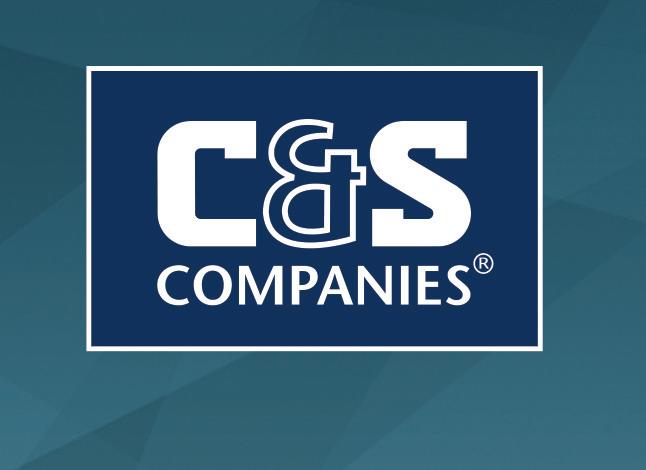





other midwestern states.
The government alleged that, as a nonDBE, United and its President, Kim Rasnick, conspired with a DBE, D&K, and its president, Dorrie Wise-Harris, to provide materially false representations and information regarding ownership and control of D&K for DBE certification and recertification purposes. These allegations were investigated by the U.S. Department of Transportation’s Office of Inspector General and culminated in this settlement.
“The DBE Program is designed to provide business opportunities to minority- and women-owned businesses. Funds designated for that purpose should not be misallocated to businesses masquerading as legitimate DBEs,” said United States Attorney Steven D. Weinhoeft.







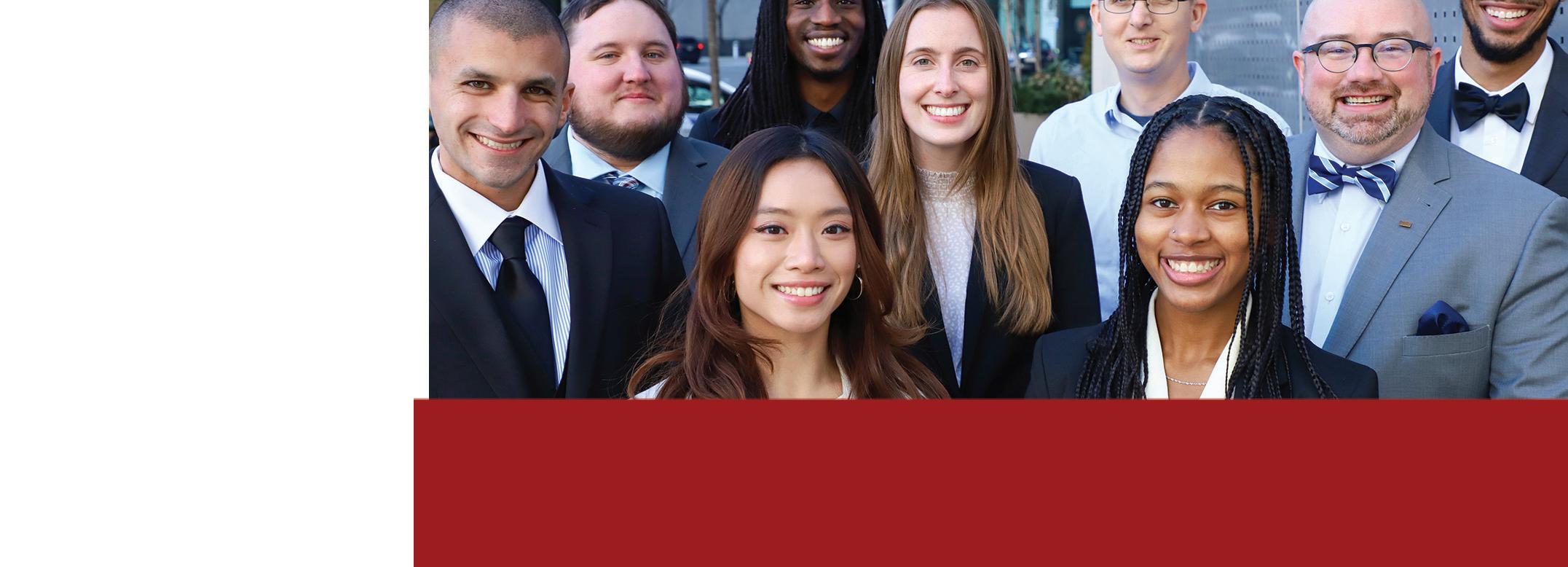
Karl and Diana Jefferson, who own a steel construction firm in Southern Illinois, brought the allegations to light. The False Claims Act permits private individuals to sue on behalf of the government for false claims and to

share in any recovery. The civil lawsuit was filed in the Southern District of Illinois and is captioned United States et al. v. United Ironworkers, Inc., et al., 17-cv-1402. The Jefferson litigants will receive $79,200 from the settlement proceeds.

The False Claims Act (FCA), 31 U.S.C. §§ 3729 - 3733 was enacted in 1863. The U.S. Congress was concerned that suppliers of goods to the Union Army during the Civil War were defrauding the Army. The FCA provided that any person who knowingly submitted false claims to the government was liable for double the government’s damages plus a penalty of $2,000 for each false claim. Since then, the FCA has been amended several times. In 1986, there were significant changes to the FCA, including increasing damages from double damages to treble damages and raising the penalties from $2,000 to a range of $5,000 to $10,000. The FCA has been amended three times since 1986.
Source: U.S. Department of Justice

37 / SPRING 2022
DEVELOPMENT
New Infrastructure Investment and Jobs Act Adds Prompt Pay Requirements – Impacting Public Sector Organizations, Prime Contractors and Subcontractors Alike
Increased Funding Opportunities Under the Infrastructure Investment and Jobs Act

To the relief of many, a bi-partisan majority in Congress recently enacted legislation to fund a massive investment in the nation’s infrastructure – including roads and bridges, public transit, rail, electric grids and water systems. The highest proportion of the Infrastructure Investment and Jobs Act (the “Act”) funding falls within the oversight of the United States Department of Transportation (USDOT). As a result of the USDOT’s longstanding regulations requiring the utilization of Disadvantaged Business Enterprises (DBEs) on USDOT-funded projects, small and diverse contractors around the country are preparing for an increase in contracting opportunities.
At the same time, state departments of transportation are preparing for an influx of funds related to the Act. Likewise, many counties and cities that have seen only limited and sporadic direct funding from the USDOT over the past 25 years are ramping up their own grant applications as they reach out for direct grant funds from the Federal Aviation Administration (FAA) and the Federal Transit Administration (FTA) to address air, bus and rail infrastructure in need of updating.
The Act and Its Impact on the DBE Program
Almost lost amid this flurry of federally funded construction activities are important Congressional findings concerning the DBE Program. The Act makes two key findings related to the DBE Program:
1. Congress specifically re-affirmed the need for continuation of the DBE Program in federal transportation contracting. Despite past DBE Program successes, Congress found
that discrimination and related barriers continue to pose significant obstacles to women- and minority-owned businesses in federal transportation markets.
2. In the Act, Congress also placed a new and special emphasis on the concept of “Prompt Pay” as it pertains specifically to DBE subcontractors. The Act seeks to ensure the protection of DBEs by requiring guarantees that subcontractors will receive payments on their invoices timely and promptly.
The focus of this article is the second key finding in the Act related to guarantees of Prompt Pay for DBE subcontractors. But prior to exploring the Act’s effects in this regard, let’s take a brief tour of the concept of Prompt Pay as a whole.
What is Prompt Pay?
Prompt pay is not a new concept, as the Prompt Payment Act was first enacted in 1982 and applied to any construction contract funded by any agency of the federal government. See 39 U.S.C. § 3901 et seq. The intent of the Prompt Pay concept was to protect all tiers of contractors, subcontractors and suppliers from late payments on federally funded construction projects. The law did this by providing a timeline of when payments must be released to the prime contractor, subcontractors and suppliers. In a nutshell, parties must pay all applicable contractors within 30 days of receipt of each payment. Specific regulations also apply to retainage, work completion and means of enforcement.
Importantly, the federal Prompt Pay concepts were later incorporated into the transportation regulations for DBE programs under Title 49. See 49 C.F.R. § 26.29. The transportation regulations require that a
government agency’s DBE Program also must include appropriate means to enforce the prompt pay requirements. See 49 C.F.R. § 26.29(f).
The 2021 Act’s Emphasis on Prompt Pay for DBE Subcontractors
With that background, let’s now turn to the unique Prompt Pay requirements arising out of the new 2021 Act. Interestingly, the Act does not contain Prompt Pay changes for all contractors. Instead, the Act focuses its efforts on one specific group of contractors – DBE subcontractors.
The Act contains a “sense of Congress” provision to introduce the concept of Prompt Payment for DBE subcontractors. A “sense of Congress” provision is a formal Congressional expression of opinion on matters of national interest. The specific provision states:
SENSE OF CONGRESS ON PROMPT PAYMENT OF DBE SUBCONTRACTORS.—It
is the sense of Congress that—
(A) the Secretary [of Transportation] should take additional steps to ensure that recipients comply with section 26.29 of title 49, Code of Federal Regulations (the disadvantaged business enterprises prompt payment rule), or any corresponding regulation, in awarding Federally funded transportation contracts under laws and regulations administered by the Secretary;
and
(B) such additional steps should include increasing the ability of the Department to track and keep records of complaints and to make that information publicly available. (emphasis added).
38 / SPRING 2022
BUSINESS
In a display of clarity, Congress expressed its opinion that not only should specific steps be taken to guarantee that DBE subcontractors are receiving Prompt Pay, but that such steps should include the ability for the USDOT to track and keep records of prompt payment complaints – and that such complaints should be made publicly available. Notably, the Act expresses no opinions on how such tracking and record keeping should be accomplished.
Technology Answers the Call
At first glance, the requirements of the Act appear out of touch. Tracking and surfacing findings related to 1-10 tiers of contractors on public works contracts can oftentimes involve hundreds of contractors with whom the contracting government agency has no information or connection.
Fortunately, the means to meet Congressional directives to the transportation contracting ecosystem do, in fact, exist in the market. Software systems such as the B2Gnow system and others in this class have been built specifically to track DBE participation and utilization on construction contracts. As a result, such software systems have the
added functionality that permits not only DBE subcontractors, but all subcontractors on such projects, to report payment details and dates through multiple tiers of contracting, invoicing and payment.

Supplier diversity compliance technologies such as B2Gnow allow transparency in determining which primes and subcontractors are dilatory in their payment practices to DBE subcontractors utilized on public contracts. In systems like B2Gnow, DBE subcontractors provide quick “audit” feedback on all invoices submitted on public works contracts. Through these systems, DBE subcontractors report back details such as: confirmation of the invoice amount, confirmation of receipt of payment, confirmation of date of payment, confirmation of paid-to-date, and even confirmation of retainage. System reports provide the summary roll-up data that Congress desires to comply with the new requirements of the Act.
Conclusions
Increased opportunities for funding at all government levels will be available through the Act – and these funding opportunities will filter down to contractors at all tiers. At
the same time, new Congressional intent and directives are clear with respect to Prompt Pay requirements for DBE subcontractors. Is your organization ready to meet these requirements and provide the necessary reporting?
DBE PROGRAM EXPERTS
ALL PHASES, ALL MODES—SINCE 1989
• Compliance Monitoring and Report Development

• DBE – ACDBE Certification Support
• Airport Concessions DBE Programs


About the author: Ryan Kelly serves as the Chief Revenue Officer of B2Gnow (www. b2gnow.com), the leading supplier diversity management software in North America. He has worked with several compliance software companies over the past 20 years in executive leadership roles. Prior to that, Mr. Kelly was a practicing transportation regulatory attorney and served as an executive committee member for the Arizona Trucking Association.
to DBE/ DBELO or Certification Duties?
For you, a year-round professional development training opportunity.
• Joint Venture Agreements
• Disparity Studies – Anecdotal Data
• Staff Development and Training
• Training via the National DBE Institute

Clients Include:
• State Highway Departments
• State and Local Transit Agencies
• Airport Authorities and City Aviation Departments
(888) 762-6296
P.O. Box 3113, Wilmington, NC 28406
RALEIGH
ATLANTA
• Functional Understanding of DBE/ACDBE Programs
• Requirements for Program Admin Staff
• Goal Setting Methodologies and Program Monitoring
• Understanding Joint Ventures in ACDBEs
• Developing Outreach Programs
“Better Professionals equals Better Programs” www.kwaplanning.com


Please
our website for schedules and locations
39 / SPRING 2022
Topics
Include:
Newly Assigned
NEED TRAINING?
kenneth-weeden@kwaplanning.com
•
•
see
WILMINGTON www.natdbe-ti.com (888) 762-6296
nikki-Jefferies@kwaplanning.com
• DBE & ACDBE Program and Goal Methodologies
The Airport Minority Advisory Council (AMAC) and the Chicago Department of Aviation present the 37th Annual AMAC Airport Business Diversity Conference: Redefining Aviation Opportunities Together from June 20–23, 2022 in Chicago, IL.

AMAC’s Annual Airport Business Diversity Conference continues to connect over 1,000 businesses, aviation professionals, government officials and individuals from around the country to discuss a variety of subjects ranging from how to do business at airports to public policy issues impacting the entire aviation industry. This highly acclaimed conference is the premier industry-wide event of the year—serving as a hub for education, advocacy and networking opportunities that promote diversity and inclusion in the aviation and aerospace industries.
SECURE YOUR SPOT TODAY! REGISTER OR SPONSOR BY VISITING www.amac-org.com/annualconference
CONFERENCE HIGHLIGHTS
Ü Airport Directors 20/20 Forum
Ü AMAC Catalyst Awards
Ü Exhibit Expo
Ü AMAC Foundation Celebrating Women in Aviation Program
Ü Business Matchmaking
Ü AMAC Foundation Bill Walker Memorial Topgolf
Ü DBE/ACDBE Certification Training
Ü AMAC Foundation Scholarship Program

Ü Educational Sessions and Workshops
Ü Networking Receptions
Ü Industry Updates
…AND MUCH MORE!
WHO SHOULD ATTEND?
Ü Aviation, Airport and Transportation Executives
Ü Aviation, Airport and Transportation Emerging Leaders
Ü Industry Consultants and Engineers
Ü Marketing and Business Professionals
Ü Concessions and Revenue Team Members
Ü Project Managers and Change Agents
WHETHER YOU ARE A SKILLED OR EMERGING LEADER, YOU DON’T WANT TO MISS THIS PREMIER AVIATION INDUSTRY EVENT
40 / SPRING 2022

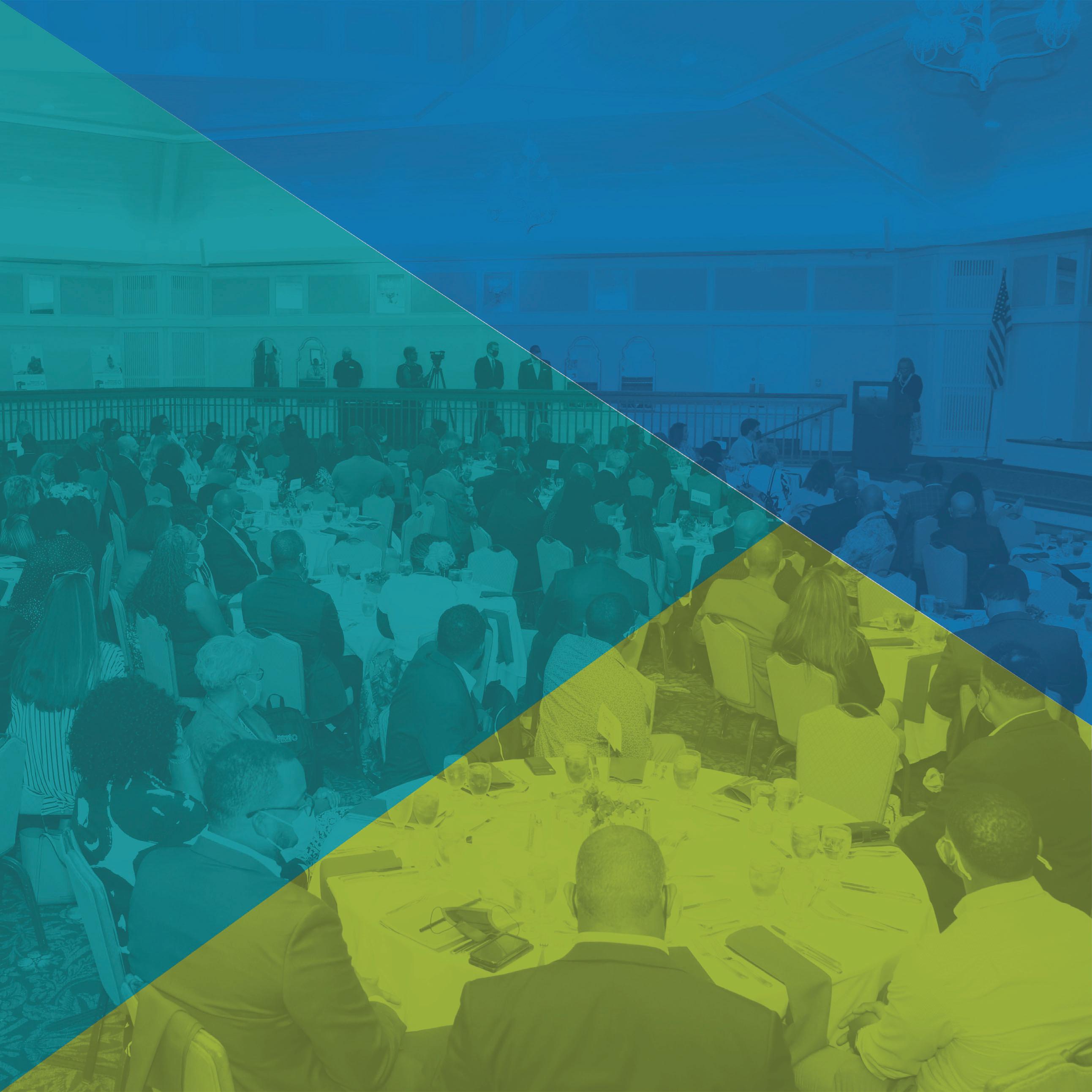





































































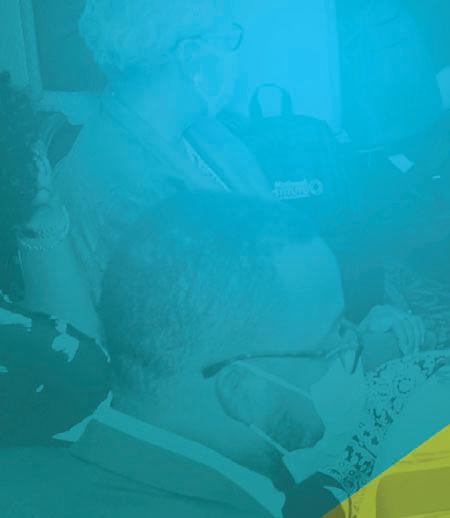
























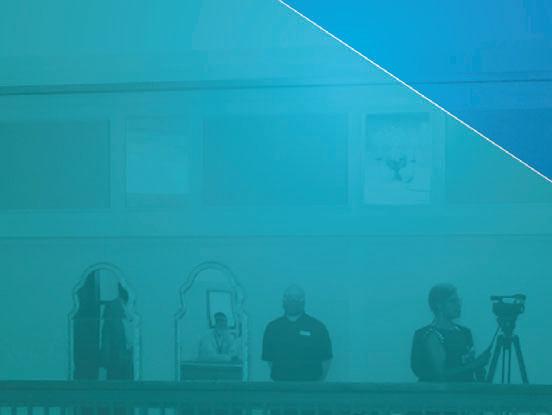














41 / SPRING 2022 POWER FORWARD: Pivoting Towards Resiliency POWER FORWARD: Pivoting Towards Resiliency Premier Business Networking Conference & Golf Tournament www.TheInstituteNC.org/ENC22 REGISTER NOW ENC is the place for people to come together to learn about and share creative and innovative ideas, leadership principles, and equitable economic development strategies. It is an opportunity for corporate leaders and MWBEs to build stronger B2B and B2C relationships, community development leaders to engage with other stakeholders, and to encourage emerging entrepreneurs to connect with mentors and resource opportunities.






42 / SPRING 2022 Please contact Ayesha Driggers at 803.545.3955 or ayesha.driggers@columbiasc.gov to start the ebid registration process. 803.545.3950 • OBO@columbiasc.gov www.columbiasc.gov/obo • @columbiaobo THE CITY OF COLUMBIA IS PROJECTED TO SPEND $68,883,680.00 TOWARD THE COLUMBIA DISADVANTAGED BUSINESS ENTERPRISE (CDBE) PROGRAM OVER THE NEXT YEAR. The City of Columbia needs contractors & subcontractors in the following areas: CIPP • Concrete Curb & Gutter/Sidewalks General Concrete • Horizontal Drilling Manhole Rehabilitation & Lining • Water & Sewer Contractors Grading • Electricians • Landscaping • Demolition Local and non-local contractors are invited to participate in these opportunities.
Cost-Efficient Marketing Strategies Help Win Contracts

It goes without saying; times are changing. Top business priorities are not only about meeting federal and state compliance, but also understanding that clients are looking for trustworthy and credible partners. The DBE market is growing, and it will continue to do so. Special services formerly known as niche services have now grown in popularity. It is integral to be prepared to keep up at least.
Consider these questions as part of an annual business development review process: Are you prepared? Have you been struggling with demonstrating your proven qualifications to your clients? Are you having trouble setting yourself apart from competitors in the marketplace? Are you still trying to figure out what clients are expecting? Clients want your services at the best value, and the purpose of this article is to help with highlighting those services and gaining a prospective client’s trust.
Here are three easy and often overlooked strategies and tips that could help you secure that next opportunity, project award or contract:
1. Word-of-Mouth Marketing
2. The follow-up
3. The art of telling a great story
Word-of-Mouth (WOM) Marketing is one of the easiest ways to gain a client’s trust.
WOM marketing is when a client learns about a company from the interaction and influence of a peer they trust. Think about it. When is the last time you’ve purchased food from a restaurant without reading reviews first? Think about all of the times we’ve watched a major corporation lose millions of dollars and the interest of its stakeholders after a negative review goes viral online.
WOM marketing options your firm should be considering include capitalizing on media publications and requesting referrals from
clients. Capitalizing on media publications can broaden your firm’s reach. Media publication opportunities include having your project featured in the media and getting approval from the client to include a positive quote. You should even consider applying for an ‘excellence award.’ This option is mutually beneficial because both you and the client could potentially gain exposure and notability upon winning an award. Simply requesting referrals is also another great option if things are going well with the client relationship. You might be able to ask them to give a prospect they are familiar with an introductory call and then list them as a reference in the proposal submission. Additionally, below are some statistics from Word-of-Mouth Marketing Statistics [January 2022 reference] you should be aware of:
• 85% of small businesses agree that word-of-mouth recommendations brought them the most consumers;
• Word-of-mouth marketing is responsible for driving a good 13% of sales;
• A staggering 92% of people trust recommendations from family and friends;
• Apart from friends and family, 88% of people trust online reviews by other consumers;
• As reported by word-of-mouth marketing statistics, 74% of consumers agree that word-of-mouth influences their purchasing decisions.
WOM marketing is an easy and early way to gain a prospective client’s trust, which could essentially win you the next contract. You can gain instant credibility points by allowing a prospect to hear about your ability to deliver those same services you are proposing to them. Another underrated benefit of WOM marketing is that while it is very effective, it is also one of the most economical options.
Improving your follow-up game might make you a better contract closer.
The follow-up is a critical move. It could be one of a company’s last opportunities to really WOW the prospective client – and simultaneously, the delivery can be creative. Even though e-mails and phone calls are still relevant, consider a more creative route. Some of the most ethically compliant followup methods include sending a postcard, sending a small holiday gift or card, or even sending a personalized handwritten note to express your continued interest.
It is uncommon for a client to offer a contract from an initial encounter, and business owners often hear “no” many times before they hear “yes.” Key advice: Do not let this discourage you or affect your level of interest. According to recent marketing reports, 82% of customers viewed five or more pieces of content from the winning vendor before making a purchase, and most contracts are awarded as a result of companies following up after multiple attempts.
It is safe to say that not following up can be costly. It is important to follow up with prospective and even existing clients for retention. A 2019 study by marketing firm Propeller CRM indicated the following results related to how many salespeople give up after each consecutive follow-up:
• 44% stop following up after one rejection
• 22% stop following up after two
• 14% stop following up after three
• 12% stop following up after four
Because too many salespeople give up after only a handful of follow-ups, less than 10% of the same salespeople typically get a majority of the awards. Following up is yet again another cost-effective and powerful marketing tactic to improve closing statistics;
43 / SPRING 2022 BUSINESS DEVELOPMENT
thus, making the “follow-up” an integral step in marketing and business development efforts.

The art of storytelling
As a marketing practitioner and academic, I can assure you of the proven benefits of rhetorical storytelling. One of the greatest things about this strategy is that it can be applied throughout the entire sales process. You can use contract and project-specific stories to showcase your company and personnel qualifications during an initial capability statement or elevator pitch. Company representatives also can do the same during prequalification submittals and proposals, and even in presentations and interviews.
Storytelling is powerful and is a great way to leave a lasting impression on a prospective client. It also makes you more personable. Marketing can be psychological because people not only reflect on the words said, but also remember the feelings they get from presenters during pitches. You can use storytelling to get a prospective client to associate you with good feelings when you share success stories on relevant projects and people.
Finally, it is important to find a way to set yourself and your service offerings apart from your competitors. These tips should serve as either reminders or new ethicallycompliant options on how you could step up your business development and marketing game at minimal cost. Each of them offers strong opportunities to demonstrate your proven expertise to potential clients and gain their trust.
Destiny Bannister is an experienced marketing, proposals, and supplier diversity professional with a demonstrated history of working in the AEC industry for nearly a decade and a Master of Business Administration focused in Marketing. Destinysbannister@gmail.com

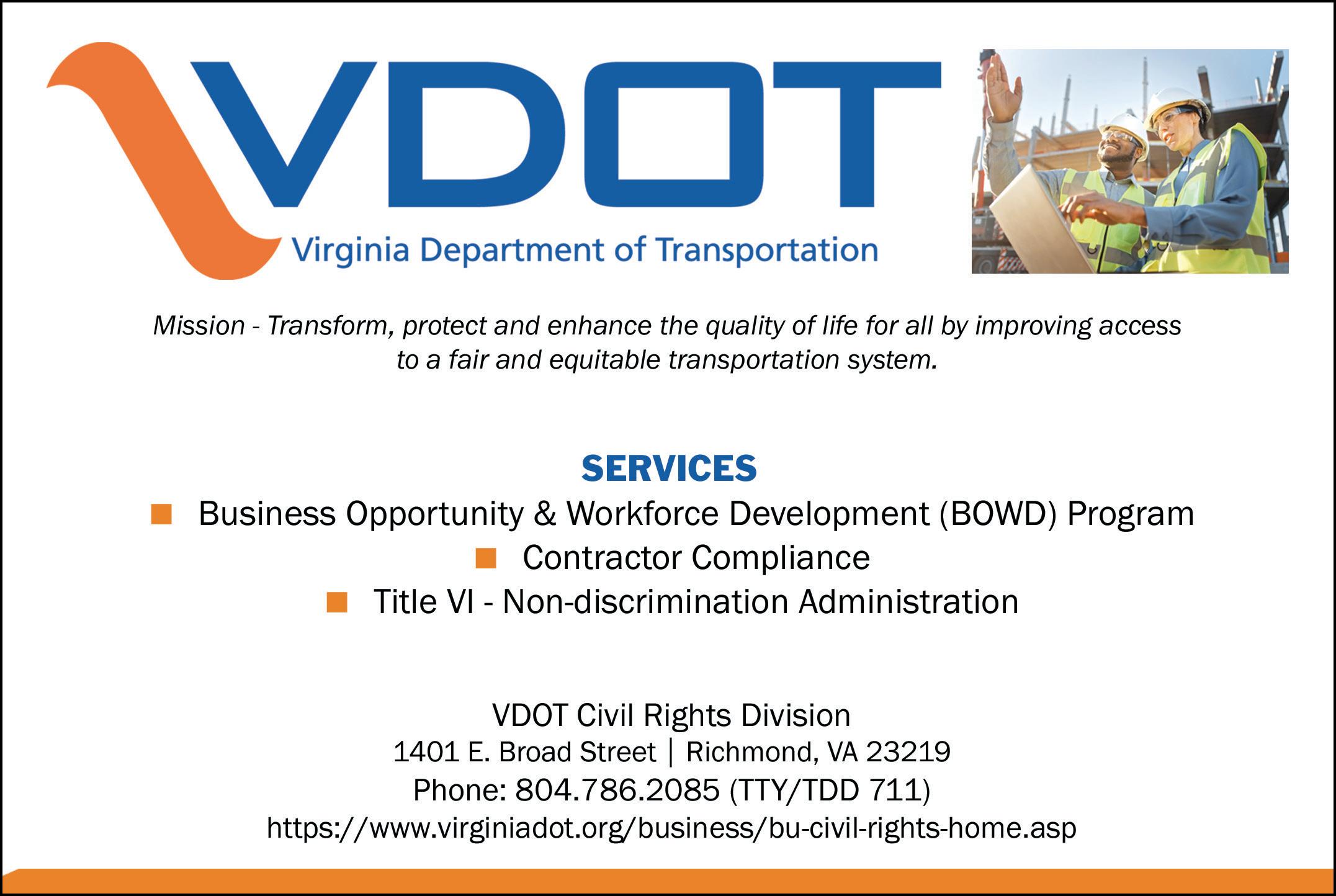
44 / SPRING 2022
Experiential Branding Through Storytelling
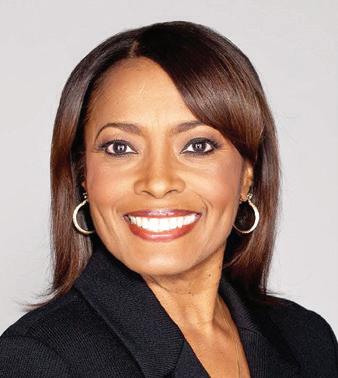
Experiential graphic design involves the orchestration of typography, color, imagery, form, technology and, especially, storytelling to create environments that communicate an organization’s brand.

Jones Worley has established a reputation as one of the premier strategic communications agencies in the nation offering comprehensive creative services to develop the overall look and feel of a master development. From brand identity to marketing collateral to experiential graphic design, Jones Worley strives to design signage programs that improve customer service with engaging graphics and easy-to-read messages, while

also complementing the aesthetics of the landscape and internal and external architecture of the given environment.
Jones Worley has partnered with companies ranging in size from small businesses to Fortune 500s to help their customers, employees and vendors navigate these sometimes complex and massive campuses. Regardless of the size of the structure, we go beyond simple wayfinding to create event and brand identity that leaves a lasting impression. Our forte is developing wayfinding strategy that provides clear direction at decision points and designing signage programs tailored to each client’s needs.
45 32 YEARS OF EXPERIENTIAL GRAPHIC DESIGN EXCELLENCE | 1990-2022
cjparks@jonesworley.com 404-876-9272
Cynthia Jones Parks President/CEO
Jones Worley. A small DBE firm with big business expertise in strategic marketing, branding, outreach, campaign development, wayfinding, experiential graphics and signage design.
ADVERTISER LISTING
Page 40: Airport Minority Advisory Council
Page 25: Austin Commercial
Page 48: B2Gnow
Page 37: C&S Companies
Page 31: Charlotte Area Transit System (CATS)
Page 42: City of Columbia, South Carolina
Page 26: CKL Engineers
Page 8: Clark Construction
Page 12: Colette Holt & Associates
Page 2: Corporate Environmental Risk Management (CERM)
Page 21: GCAP Services
Page 20: Griffin & Strong PLLC
Page 27: Hampton Road Bridge Tunnel
Page 15: Hill International
Page 22: Houston Airport System
Page 45: Jones Worley
Page 39: Ken Weeden & Associates
Page 3: Lane Construction
Page 7: Messer Construction
Page 9: Michigan Department of Transportation
Page 41: National Institute of Minority Economic Development (NIMED)
Page 12: Point North
Page 5: PR Pros
Page 44: Virginia Department of TransportationCivil Rights
2022 Upcoming National Events
Airport Minority Advisory Council (AMAC)
37th Annual AMAC Airport Business Diversity Conference
June 20–23, 2022; Chicago, Illinois https://www.amac-org.com/event/2022-amac-annualconference/
Conference of Minority Transportation Officials (COMTO)
51st National Meeting and Training Conference
July 9-11, 2022; Fort Lauderdale, Florida https://comtonational.org/nmtc/
National Association of Women in Construction (NAWIC)
2022 NAWIC 67th Annual Conference
August 17-20, 2022; Minneapolis, Minnesota https://www.nawic.org/annual_conference
American Association of Highway Transportation Officials (AASHTO)
2022 Agency Administration Conference
August 21-25, 2022; Charleston, South Carolina https://civilrights.transportation.org/
American Contract Compliance Association (ACCA) National Training Institute

August 22-27, 2022; Charlotte, North Carolina http://accaweb.org/nti/2022nti.html
American Public Transportation Association (APTA) APTA’s TRANSform Conference
October 9-12, 2022; Seattle, Washington https://www.apta.com/conferences-events/
American Association of Highway Transportation Officials (AASHTO)
2022 AASHTO Annual Meeting
October 18-24, 2022; Orlando, Florida https://www.transportation.org/
National Minority Supplier Development Council (NMSDC) NMSDC Conference + Business Opportunity Exchange (BOE)
October 30 - November 2, 2022; New Orleans, Louisiana https://nmsdc.org/
46 / SPRING 2022
American DBE Magazine is the premiere information and marketing publication for businesses, administrators and stakeholders in programs supporting the growth and success of minority- and women-owned companies in the transportation and infrastructure industry.

American DBE Magazine is the premier informational and marketing publication for businesses, administrators and stakeholders in programs supporting the growth and success of minority- and women-owned companies in the transportation and infrastructure industry.








FEATURES





○ Industry

47 / SPRING 2022
○ Business Opportunities
Best
○ ○ Get a print or digital subscription today by visiting Tune in to the P3 Project, a podcast to help diverse entrepreneurs turn their passion into a business of purpose and PODCAST AVAILABLE ON � Google Podcasts � Apple Podcasts � Stitcher Radio � americandbe.com/p3project/ Contact us at or (919)741-5233 for more information or advertising opportunities. American Diverse Business Enterprise Magazine Contact us at editor@americandbe.com or (919) 741-5233 for more information or advertising opportunities. www.americandbe.com/p3project/
Practices
The Nation’s Leading Diversity Management Software

48 / SPRING 2022 W NB2G
trusted source for contract compliance, certi cation, outreach, goal setting, EEO, bid compliance, OJT, spend analysis, and vendor management systems. B2Gnow.com Visit us today at
Your















































































































































































































































